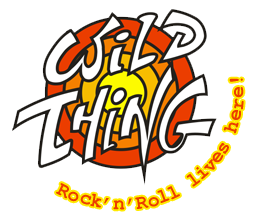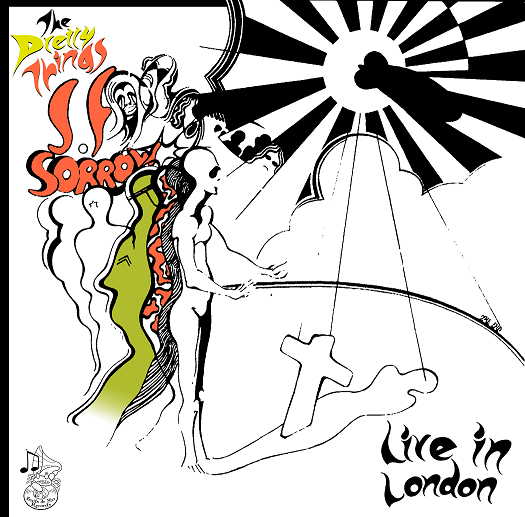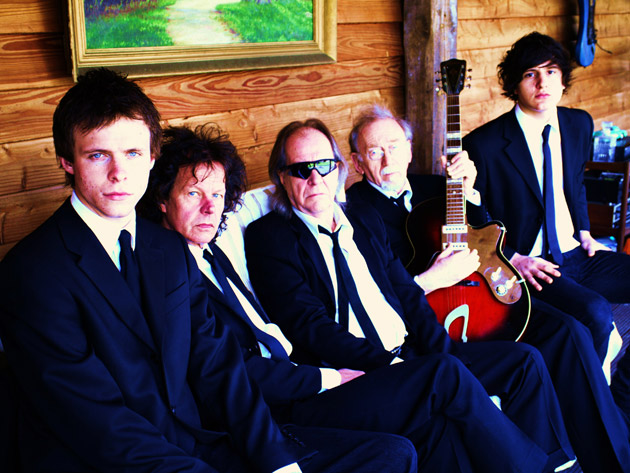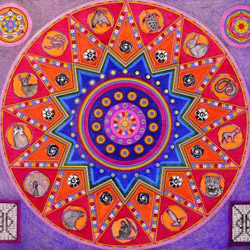
Κυρίες & κύριοι, οι Pretty Things
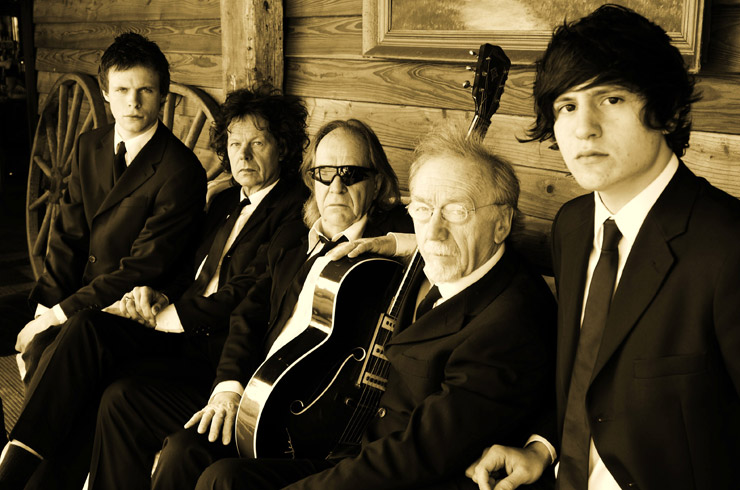
Ό,τι και να πούμε για τους Pretty Things θα είναι λίγο. Ένα συγκρότημα σημαντικό όσο λίγα στην ιστορία του rock & roll, η επιρροή του οποίου φτάνει μέχρι τις μέρες μας και απλώνεται σε όλα σχεδόν τα παρακλάδια του είδους.
Η πολύ σπουδαία βρετανική μπάντα που στην κυριολεξία μεγαλούργησε κατά την διάρκεια της δεκαετίας του '60 και ηχογράφησε ιστορικούς δίσκους όπως τα 'Get the Picture?' (1965) και 'S.F. Sorrow' (1968) συνεχίζει (με κάποια διαλείμματα) δυναμικά μέχρι και σήμερα.
Στις αρχές του καλοκαιριού η Fruits de Mer Records κυκλοφόρησε το σινγκλ "Honey I Need"/"I Can Never Say". το οποίο αποτελεί κάτι σαν ριμέικ του τρίτου τους σινγκλ. Η Α' πλευρά είναι από την συναυλία που έδωσε η μπάντα το 2010 στο 100 Club όπου έπαιξε ολόκληρο το πρώτο άλμπουμ του 1965 (το ζωντανό αυτό ριμέικ θα κυκλοφορήσει από την ίδια εταιρεία σύντομα σε βινύλιο) και η Β' πλευρά του σινγκλ είναι ένα ακυκλοφόρητο ντέμο από το 1965. Επίσης (πάλι από την Fruits de Mer) είχαμε και την κυκλοφορία φόρο τιμής στους Pretty Things και στο αριστούργημα 'S.F.Sorrow', το 'Sorrow's Children' με την συμμετοχή νέων συγκροτημάτων. Όπως είπε και ο David Gilmour πριν λίγα χρόνια «ο καιρός για την αναγέννηση των Pretty Things έχει σίγουρα φτάσει». Είναι μεγάλη τιμή για το Wild Thing που οι κύριοι Dick Taylor και Phil May μας έδωσαν τις συνεντεύξεις που ακολουθούν.
Η συνέντευξη του Dick Taylor
Wild Thing: Σε ποια ηλικία ξεκινήσατε να παίζετε μουσική και τι σας τράβηξε στην κιθάρα;
Dick Taylor: Πρέπει να ήταν το 1954 όταν ήμουν έντεκα ετών. Δύο φίλοι έφεραν κάτι πλαστικά γιουκαλίλι και άρχισα να γρατζουνάω ένα από αυτά. Ο παππούς μου ήταν ερασιτέχνης οργανοπαίκτης που ήταν εξαιρετικός με ό,τι όργανο έπιανε στα χέρια του, ειδικά με τα έγχορδα. Εγώ πάντα ένιωθα ως ο μουσικά-αδέξιος της οικογένειας. Το skiffle και το rock & roll έδειχναν να έχουν μια απλότητα που μπορούσα να κατανοήσω και έτσι ξεκίνησα να παίζω. Τότε άκουσα μπλουζ και κατάλαβα τι ήταν αυτό που ήθελα να παίξω.
WT: Ποιοι μουσικοί επηρέασαν το παίξιμο σας στην κιθάρα;
D.T.: Chuck (Berry), Bo (Diddley), Muddy (Waters) και περισσότερο απ' όλους ο Hubert Sumlin. O πρώτος μπλουζίστας που άκουσα και προσπάθησα να μιμηθώ (ίσως όχι πολύ καλά) ήταν ο Big Bill Broonzy.
WT: Η βρετανική r&b/blues σκηνή πήρε τα πάνω της στα τέλη της δεκαετίας του '50 - αρχές '60. Τι πιστεύετε ότι έστρεψε την γενιά σας στη μαύρη αμερικάνικη μουσική;
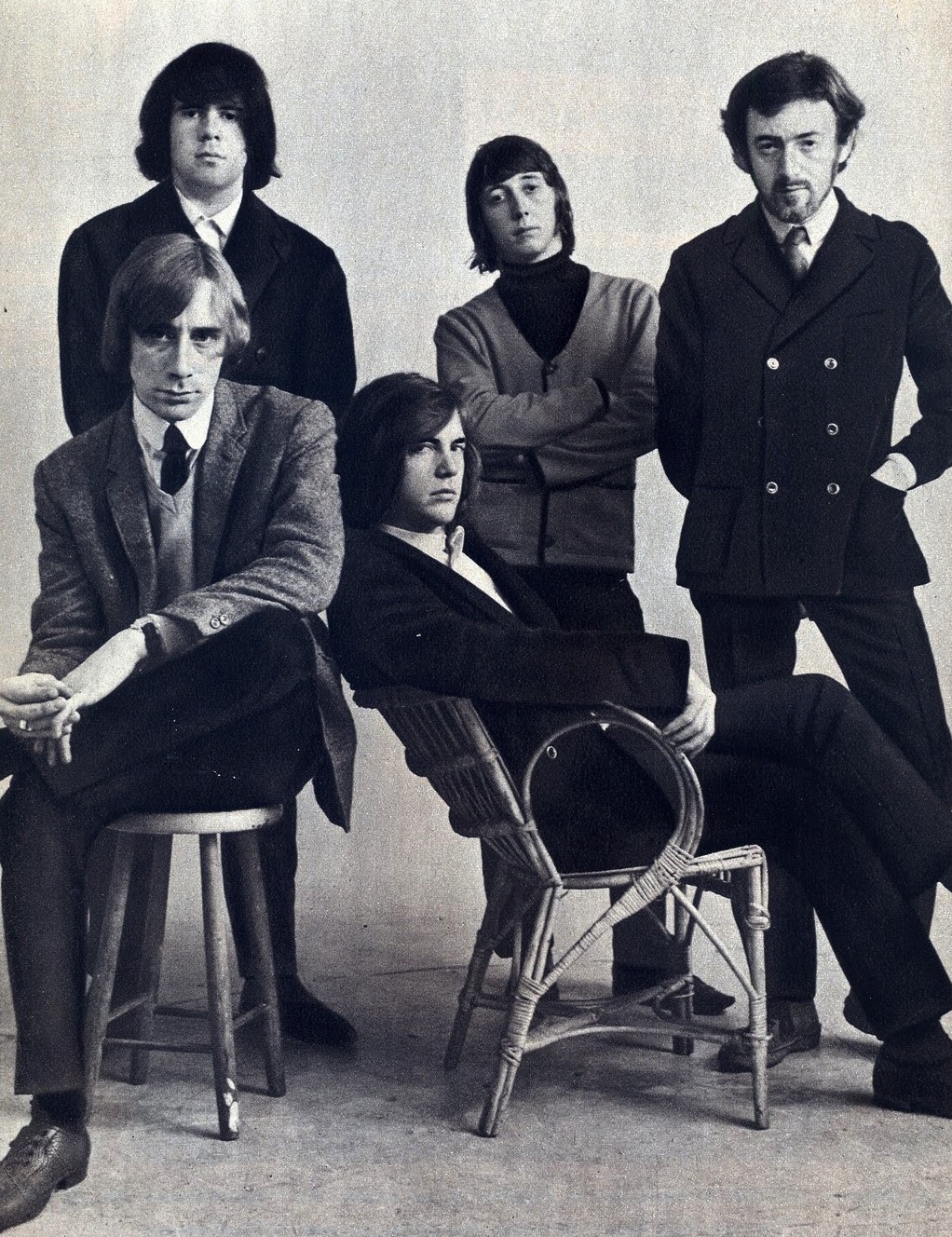 D.T.: Νομίζω ότι η μαύρη μουσική ήρθε στην Βρετανία ακολουθώντας αρκετά διαφορετικές διαδρομές. Η σκηνή της παραδοσιακής τζαζ της δεκαετίας του '50 οδήγησε τον Chris Barber να φέρει ονόματα όπως η Sister Rosetta (Tharpe) και ο Muddy Waters. Επίσης η σκηνή της φολκ, η οποία δεν είχε μόνο γραφικούς ερασιτέχνες αλλά και έντονα αντιρατσιστές αριστερούς, με ακούσματα όπως ο Leadbelly και οι Sonny Terry & Brownie McGee. Όσον αφορά εμένα, άκουγα τζαζ (παραδοσιακή και μοντέρνα), φολκ και ροκ εντ ρολ. Το μπλούζ ήταν αναπόσπαστο τμήμα και βάση για όλα τα υπόλοιπα. Η δυνατότητα να ακούσεις συναρπαστική και υπέροχη μουσική, όταν μέχρι τότε το ραδιόφωνο έπαιζε τόσο ανιαρά πράγματα, ήταν το σημαντικότερο πράγμα. Και ειδικά όταν το ροκ εντ ρολ έγινε «νερόβραστο» - γιατί να ακούσεις Pat Boone όταν μπορείς να ακούσεις Little Richard;
D.T.: Νομίζω ότι η μαύρη μουσική ήρθε στην Βρετανία ακολουθώντας αρκετά διαφορετικές διαδρομές. Η σκηνή της παραδοσιακής τζαζ της δεκαετίας του '50 οδήγησε τον Chris Barber να φέρει ονόματα όπως η Sister Rosetta (Tharpe) και ο Muddy Waters. Επίσης η σκηνή της φολκ, η οποία δεν είχε μόνο γραφικούς ερασιτέχνες αλλά και έντονα αντιρατσιστές αριστερούς, με ακούσματα όπως ο Leadbelly και οι Sonny Terry & Brownie McGee. Όσον αφορά εμένα, άκουγα τζαζ (παραδοσιακή και μοντέρνα), φολκ και ροκ εντ ρολ. Το μπλούζ ήταν αναπόσπαστο τμήμα και βάση για όλα τα υπόλοιπα. Η δυνατότητα να ακούσεις συναρπαστική και υπέροχη μουσική, όταν μέχρι τότε το ραδιόφωνο έπαιζε τόσο ανιαρά πράγματα, ήταν το σημαντικότερο πράγμα. Και ειδικά όταν το ροκ εντ ρολ έγινε «νερόβραστο» - γιατί να ακούσεις Pat Boone όταν μπορείς να ακούσεις Little Richard;
WT: Ξεκινήσατε με τους πρώιμους Rolling Stones. Ποιος ήταν ο λόγος που τους αφήσατε; Τι σας έμεινε από την συνεργασία μαζί τους;
D.T.: Έπαιζα στους Little Boy Blue με τον Mick Jagger (και λίγο αργότερα με τον Keith Richards) λίγο πριν συναντηθούμε με τον Brian Jones και τον Ian Stewart. Ο Brian πρότεινε να παίξω μπάσο και απογοητεύτηκα λίγο επειδή δεν θα 'παιζα κιθάρα. Όμως απολάμβανα πολύ αυτό που κάναμε. Προσπαθούσα να μπω στο Royal College of Art και είχα αρκετή δουλειά να κάνω, γι' αυτό και έτσι αποφάσισα να αποχωρήσω από την μπάντα. Πάντως ήταν απολαυστική η περίοδος που πέρασα με τους Stones, είχε πολλή πλάκα και απολαμβάναμε την παρέα μεταξύ μας. Επίσης η μουσική ήταν πολύ καλή.
WT: Στην σχολή Καλών Τεχνών συναντηθήκατε με τον Phil May και φτιάξατε τους Pretty Things. Απ' το ξεκίνημα σας η μουσική των Pretty Things ήταν ακατέργαστη. Ο ήχος και η συμπεριφορά της μπάντας ήταν πιο άγρια από τα υπόλοιπα συγκροτήματα της εποχής. Τι το προκάλεσε αυτό;
D.T.: O Phil ήταν πάντα ένας εκπληκτικός περφόρμερ και μεγάλο μέρος από την «ωμότητα» προήλθε από την σκηνική του παρουσία. Επίσης ξεκινήσαμε παίζοντας για τους συμφοιτητές μας, που ήθελαν να ζήσουν «άγριες» στιγμές και θέλαμε να βγάλουμε την «βρωμιά» που ακούγαμε και αγαπούσαμε στο r&b.
WT: Από τις πρώτες σας ηχογραφήσεις ξεχωρίζει η χρήση της ακουστικής κιθάρας που δημιουργεί έναν προσωπικό ήχο. Πείτε μας μερικά πράγματα γι' αυτό καθώς και για τον κιθαριστικό εξοπλισμό που χρησιμοποιείτε στο στούντιο και στις συναυλίες.
D.T.: Η πρώτη μου κιθάρα ήταν ακουστική και όταν είχα αρκετά χρήματα αγόρασα μια δωδεκάχορδη Gibson, την οποία χρησιμοποίησα σε αρκετές από τις πρώτες μας ηχογραφήσεις. Με δώδεκα ή έξι χορδές, αυτή ήταν η μόνη ακουστική κιθάρα που χρησιμοποιήσαμε μέχρι και το S.F. Sorrow. Δυστυχώς τελικά την κλέψανε από το βανάκι των Hawkwind, οι οποίοι με αποζημίωσαν γι' αυτό αλλά η απώλεια της ήταν μεγαλη. Με αυτήν έπαιξα στο "Hurry On Sundown" (σσ. το κομμάτι που ανοίγει το ντεμπούτο των Hawkwind). Τώρα χρησιμοποιώ την ακουστική της γυναίκας μου, μια πολύ παλιά Grammer που είχε φτιαχτεί για την Dolly Parton, με την οποία παίζω τη μπλουζ φάση που κάνουμε στα μέσα των συναυλιών, το "Blues Bit". Η ηλεκτρική που χρησιμοποιώ είναι μία Hutchins Regal που είναι βασισμένη σε μια παλιά Harmony και έχει ιδιαίτερα χαρακτηριστικό ήχο, ειδικά σε συνδυασμό με τον αρχαίο Selmer Zodiac ενισχυτή που έχω. O Mark St John, ο μάνατζερ και παραγωγός μας, έχει μια αρκετά τεράστια συλλογή από κιθάρες και ενισχυτές που χρησιμοποιούμε στο στούντιο. Είναι πάρα πολλά για να τα απαριθμήσω, αλλά αν τον καταφέρω να μου τα αφήσει στην διαθήκη του μπορεί να χρειαστεί να τον ξεκάνω μια ώρα αρχύτερα!
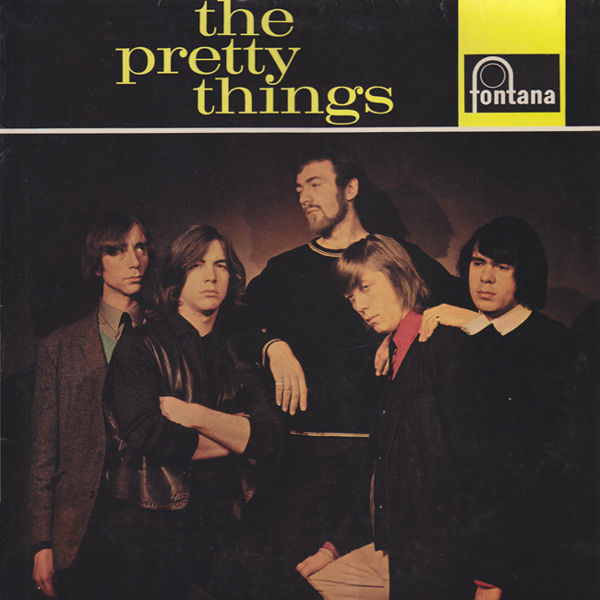 WT: Τα δύο πρώτα άλμπουμ των Pretty Things είναι από τα καλύτερα και επιδραστικότερα της εποχής. Τι πιστεύετε ότι κάνει αυτά τα άλμπουμ τόσο σημαντικά;
WT: Τα δύο πρώτα άλμπουμ των Pretty Things είναι από τα καλύτερα και επιδραστικότερα της εποχής. Τι πιστεύετε ότι κάνει αυτά τα άλμπουμ τόσο σημαντικά;
D.T.: Νομίζω ότι αυτό που περνάει στα πρώτα δύο άλμπουμ είναι η ωμότητα και ο αυθορμητισμός που είχαμε επί σκηνής. Οι περισσότερες ηχογραφήσεις βρετανικής μουσικής της εποχής ήταν ανούσιες και καλογυαλισμένες. Ο τότε παραγωγός μας Bobby Graham κατάφερε να πιάσει την ουσία μας.
WT: Στα μέσα της δεκαετίας του '60 οι συναυλίες σας είχαν άγριες στιγμές. Ποια περιστατικά σας έχουν μείνει αξέχαστα;
D.T.: Θα πρέπει να είναι ο ιπτάμενος ντράμερ! Παίξαμε αρκετές φορές στο Scheveningen της Ολλανδίας όπου ο Viv Price συνήθιζε να αφήνει τα ντραμς και να τρέχει επί σκηνής σκαρφαλώνοντας πάνω σε ο,τιδήποτε μπορούσε να αναρριχηθεί και το θέατρο είχε μια πολύ προσβάσιμη στέγη. Όταν εμφανιστήκαμε με τον Skip Alan μας είπαν ότι αν ο ντράμερ άφηνε τα ντραμς, δεν θα πληρωνόμασταν. Ο Skip είχε την πρόθεση να ξεπεράσει τα κατορθώματα του Viv, μας υποσχέθηκε όμως να μην κουνηθεί από την θέση του. Οι διοργανωτές είχαν κρεμάσει ένα γιγάντιο πανό στο πίσω μέρος της σκηνής από ένα ατσάλινο σύρμα. Προς το τέλος του σετ ο Skip αποφάσισε να ανέβει πάνω στο σκαμνάκι του για να πιαστεί από το σύρμα αλλά δεν υπολόγισε την σούστα που είχε το σκαμνάκι, που τον πέταξε κυριολέκτικα στον αέρα και προσγειώθηκε ατσούμπαλα πάνω στα ντραμς. Ένας θεός ξέρει πώς επιβίωσε, σηκώθηκε και συνέχισε να παίζει με ό,τι είχε απομείνει απ' τα ντραμς του! Το παράξενο είναι ότι πληρωθήκαμε!
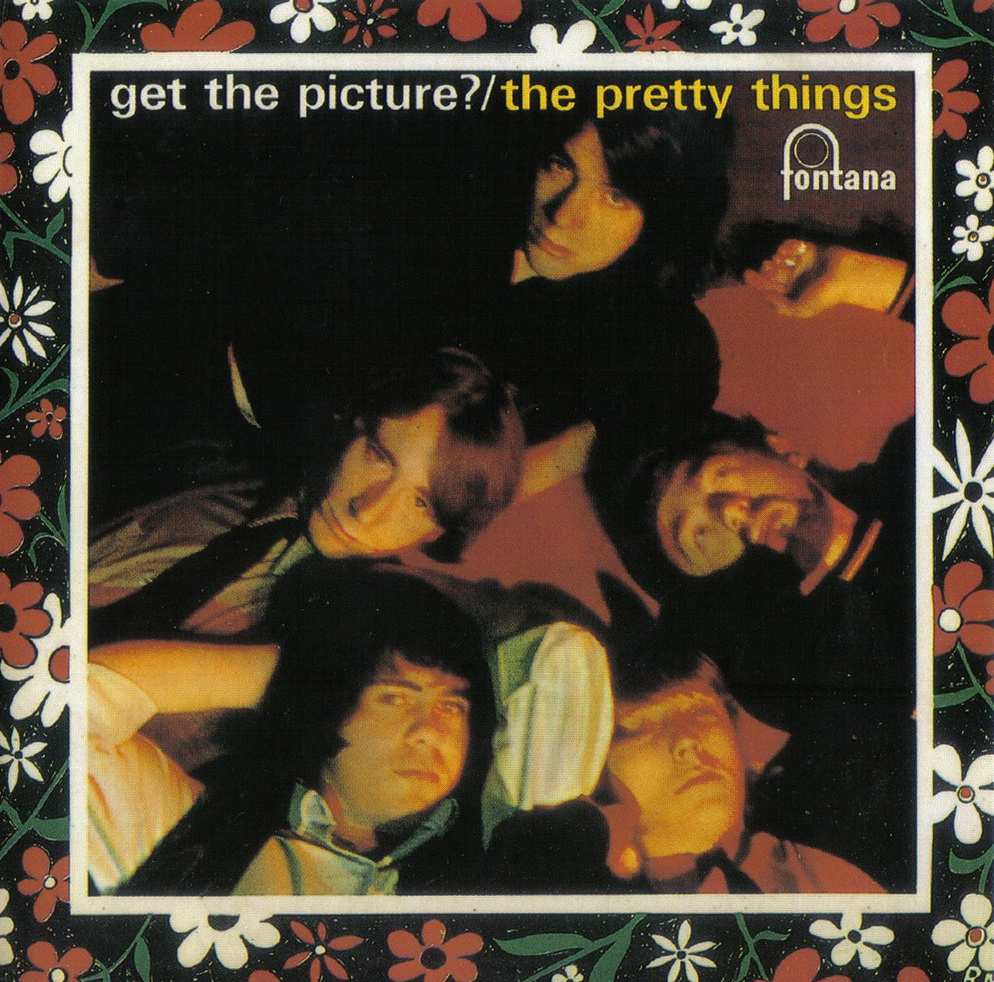 WT: Οι Pretty Things μαζί με τους Stones, τους Yardbirds, τους Them κ.λπ. επηρέασαν μια ολόκληρη γενιά νεαρών αμερικανών μουσικών, αυτό που λέμε γκαράζ πανκ στα μέσα των 60s. Παρακολουθήσατε αυτή τη σκηνή και ξεχωρίσατε κάποια γκρουπ;
WT: Οι Pretty Things μαζί με τους Stones, τους Yardbirds, τους Them κ.λπ. επηρέασαν μια ολόκληρη γενιά νεαρών αμερικανών μουσικών, αυτό που λέμε γκαράζ πανκ στα μέσα των 60s. Παρακολουθήσατε αυτή τη σκηνή και ξεχωρίσατε κάποια γκρουπ;
D.T.: Δεν ήμασταν ενήμεροι για αυτή τη σκηνή γιατί δεν είχαμε πάει στην Αμερική. Ακούγαμε όμως γκρουπ όπως οι Sonics, οι Seeds και φυσικά οι Kingsmen που ήταν σύγχρονοί μας.
WT: Πείτε μας μερικά πράγματα για τους Electric Banana.
D.T.: Μας είχαν πλησιάσει από την εταιρεία De Wolfe, η οποία ειδικευόταν σε μουσική για ταινίες και τηλεοπτικές εκπομπές, αλλά έπρεπε να χρησιμοποιήσουμε ένα άλλο όνομα για να αποφύγουμε προβλήματα λόγω συμβολαίου με την δισκογραφική μας εταιρεία. Η συμφωνία ήταν να παίξουμε κάποια τραγούδια που είχαν γραφτεί από έναν τηλεοπτικό παραγωγό και ότι μπορούσαμε να γράψουμε και δικά μας κομμάτια για να πάρουμε τα δικαιώματα. Μας έδωσαν πλήρη ελευθερία ως προς το υλικό αλλά χαμηλό προϋπολογισμό. Μετά από πολλά χρόνια με επισκέφτηκαν για κάποιο λόγο ορίσμενα μέλη των Adverts μαζί με την όμορφη Gaye Advert, που είχαν βγάλει το σινγκλ "Gary Gilmore Eyes". Ένας από αυτούς μου είπε ότι δούλευαν στην De Wolfe και ότι έβγαζαν κάνα φράγκο παρά πάνω πουλώντας άλμπουμ των Electric Banana στην ζούλα. Δεν πέρασε μεγάλο διάστημα μέχρι να κυκλοφορήσουν και επίσημα τα άλμπουμ και νομίζω ότι κυκλοφορούν ακόμα.
WT: Με το άλμπουμ Emotions του 1967 μπήκατε σε μία ψυχεδελική πειραματική φάση στην μουσική σας με απόγειο το άλμπουμ S.F. Sorrow του 1968. Τι έπαιξε ρόλο σε αυτή την μεταμόρφωση;
D.T.: Μπαίνω στον πειρασμό να πω απλά «άσιντ», αλλά η αλήθεια είναι ότι ψάχναμε ήδη για μια καινούργια κατεύθυνση και όταν τελείωσε το συμβόλαιο μας με την Fontana τα πράγματα άρχισαν πραγματικά να αλλάζουν. Αρχίσαμε να ηχογραφούμε ντέμο χωρίς κάποια εταιρεία να μας φρενάρει και ακούγαμε ιδιαίτερα ασυνήθιστο υλικό, από Albert Ayler έως Sun Ra και Karlheinz Stockhausen και θέλαμε κι εμείς να πειραματιστούμε. Έτσι βγήκαν κομμάτια όπως το "Defecting Grey".
WT: Από το 1967 το 'swinging London' άρχισε να αλλάζει. Χάπενινγκ και φάσεις όπως το 14 Hour Technicolour Dream ή οι συναυλίες στο U.F.O. κλαμπ, πειρατικοί ραδιοφωνικοί σταθμοί όπως το Radio Caroline, μαζί με τον εναλλακτικό τύπο, όπως οι International Times, αγγίζανε ένα όλο και μεγαλύτερο κοινό. Οι Pretty Things ήταν ένα κομμάτι αυτής της φάσης. Πείτε μας για την ατμόσφαιρα στο Λονδίνο εκείνη την περίοδο.
D.T.: Ήταν πραγματικά φανταστική, κάτι σαν την ανατολή μιας νέας εποχής ή ίσως την άνθηση ενός σκηνικού που υπέβοσκε για καιρό. Στον πάνω όροφο εκεί που έμενα ζούσαν κάποιοι τύποι που οργάνωσαν τα πρώτα χάπενινγκ στο Marquee. Το LSD ήταν ακόμα νόμιμο, οπότε κλείδωναν τις πόρτες, έπαιζαν οι Pink Floyd και όλοι πέρναγαν υπέροχα εκτός από αυτούς που είχαν bad trip. Αργότερα ζούσα στην Beauford Street κοντά στην King's Road και σχεδόν δίπλα στο Granny Takes A Trip. Το δωμάτιο μου ήταν βαμμένο κίτρινο, όλα στο δωμάτιο ήταν κίτρινα και είναι θαύμα που δεν έπαθα ίκτερο! Τα καλύτερα μαγαζιά ήταν τα Middle Earth, UFO και Roundhouse. Καμιά φορά όμως το κλίμα «ειρήνης και αγάπης» εκτροχιαζόταν. Θυμάμαι μία θεατρική αναπαράσταση αγώνα πυγμαχίας από μία ομάδα που αυτοαποκαλούνταν People's Theatre, η οποία «ξέφυγε» και τελείωσε με αίματα. Μάλιστα νομίζω ότι παίζανε οι Doors εκείνο το βράδυ.
WT: Παρακολουθούσατε την αμερικάνικη ψυχεδελική σκηνή; Ξεχωρίσατε κάποιες μπάντες και κάποια άλμπουμ;
D.T.: Οι Doors, οι Spirit, οι Jefferson Airplane και βέβαια οι Love έπαιζαν συνεχώς στα πικάπ μας, μαζί με ένα κάρο άλλα περίεργα ακούσματα που δεν θυμάμαι πια. Υπήρχε τόση πολύ καλή μουσική εκείνη την εποχή και τη ρουφάγαμε σαν σφουγγάρια.
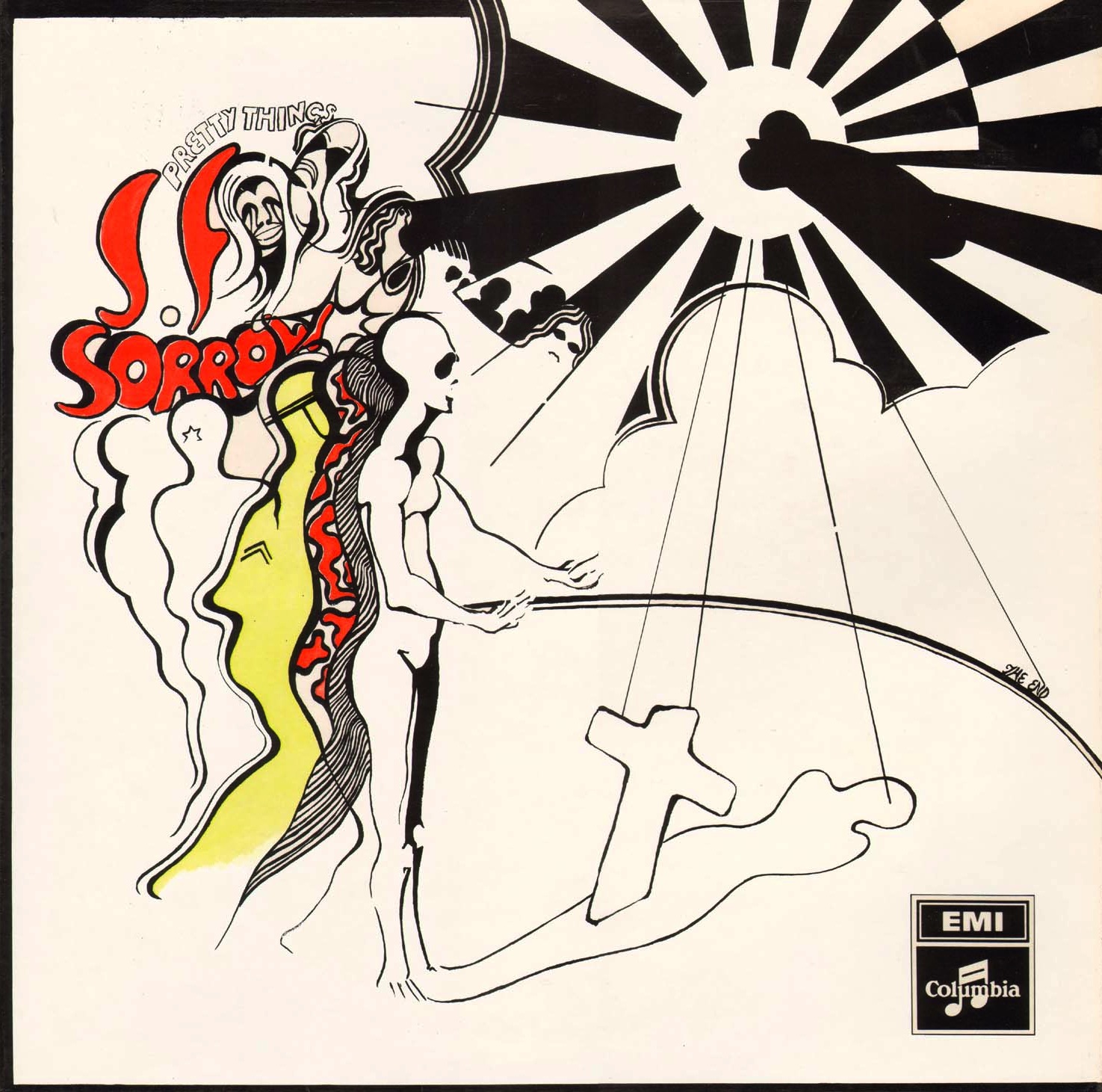 WT: Ποιες είναι οι πιο έντονες αναμνήσεις σας από την ηχογράφηση του S.F. Sorrow;
WT: Ποιες είναι οι πιο έντονες αναμνήσεις σας από την ηχογράφηση του S.F. Sorrow;
D.T.: Πολλά από αυτή την ηχογράφηση είναι χαραγμένα στο μυαλό μου, όπως ότι όλοι χτύπαγαν διάφορα αντικείμενα για το μέρος των κρουστών στο "Baron Saturday", ότι κούρδισα όλες τις χορδές της κιθάρας στην ίδια νότα για το "Death", ότι δανειστήκαμε το τεράστιο σετ τυμπάνων του Ringo Starr για ένα κομμάτι. Τον Norman Smith να ιδρώνει με τις ώρες για να φτιάξει σωστά μια λούπα. Και το ότι συναντούσαμε τους Beatles στην μηχανή αυτόματης πώλησης...
WT: Πείτε μας μερικά πράγματα για την μουσική σύνθεση και τον στουντιακό πειραματισμό σε αυτό το άλμπουμ.
D.T.: Είχαμε μαζευτεί όλοι στο σπίτι των γονιών του Phil για να γράψουμε το άλμπουμ. Καμιά φορά μας ερχόταν πρώτα μια μουσική ιδέα και άλλες φορές οι στίχοι ή ένας τίτλος ή μια κεντρική ιδέα για ένα κομμάτι. Όταν χρειαζόταν πάντως μια διαβολικά έξυπνη ιδέα, έμενα στους δικούς μου γονείς. Στο σπίτι των γονιών μου είχα ελάχιστα βιβλία - ένα από αυτά ήταν αυτό του Dennis Wheatly που διαδραματιζόταν κυρίως στην Αϊτή και στο οποίο δαιμονοποιούσε τον Baron Samedi (θεότητα του Αϊτιανού βουντού). Όταν κάποια στιγμή ψάχναμε μια πιο ιδιαίτερη έμπνευση, την βρήκα εκεί και έτσι βγήκε το κομμάτι "Baron Saturday". Eκείνη την εποχή μοιραζόμουν ένα διαμέρισμα με τον John Povey (όργανο, σιτάρ και κρουστά στους τότε Pretty Things) με τον οποίον καθόμασταν και δουλεύαμε διάφορα περάσματα στο σιτάρ και στην κιθάρα. Θυμάμαι ότι ηχογραφήσαμε το "Bracelets of Fingers" πριν έρθει του Phil η βασική ιστορία του δίσκου, η οποία εξελισσόταν καθώς την γράφαμε. Ήταν φοβερή εμπειρία να δουλεύεις στο Abbey Road, υπήρχε ένας αέρας καινοτομίας, οι τεχνικοί του στούντιο έφερναν διάφορα μηχανηματάκια που σκάρωναν οι ίδιοι, ο Norman έκανε διάφορα κόλπα με τις μπομπίνες για να πετύχει τις λούπες, και εμείς φέρναμε διάφορα «όργανα» όπως bagpipe chanters και ένα dulcimer το οποίο είχαμε κατασκευάσει με τον πατέρα μου από ένα σπασμένο πιάνο.
WT: Όταν ηχογραφούσατε το S.F. Sorrow στα στούντιο της Abbey Road, οι Beatles εκεί ηχογραφούσαν το White Album και οι Pink Floyd το Saucerful οf Secrets. Ποια ήταν η σχέση σας με αυτές τις μπάντες και πώς ήταν η ατμόσφαιρα στο στούντιο;
D.T.: Ήταν τελείως φυσικό να πέφτουμε πάνω στους Floyd ή σε κάποιον απ' τους Beatles. Δεν έβγαζαν καθόλου σταριλίκι και μάλιστα με τους Floyd ήμασταν και φιλαράκια καθώς είχαμε τον ίδιο ατζέντη.
WT: Το S.F. Sorrow είχε καθοριστική επιρροή στο Tommy των Who. Όχι μόνο η ιστορία αλλά και η μουσική σε κάποια κομμάτια έμοιαζαν πολύ, για παράδειγμα το "Pinball Wizard" είναι πολύ κοντά στο "Old Man Going". Eίχατε επαφή με τα μέλη των Who; Παραδέχθηκαν ότι το S.F. Sorrow τους επηρέασε;
D.T.: Είχαμε με τους Who έναν κοινό roadie που είχε πάρει μερικά από τα κομμάτια μας σε ένα πάρτυ όπου ήταν και αυτοί. O Pete Townshend κατά καιρούς είχε παραδεχθεί ότι τα είχε ακούσει, τώρα όμως το αρνείται. Μάλιστα απειλούσε τον Phil με αγωγή επειδή υπονόησε την επιρροή πάνω στο Tommy. Πάντως όπως και να 'χει στ' αρχίδια μου καθώς το S.F. Sorrow δείχνει να στέκεται μια χαρά στο χρόνο.
WT: Γιατί φύγατε από τους Pretty Things αμέσως μετά την κυκλοφορία του S.F. Sorrow;
D.T.: Μου άρεσε πολύ το άλμπουμ, αλλά από τότε που έφυγα από την σχολή Καλών Τεχνών δεν είχα κάνει τίποτα άλλο στη ζωή μου εκτός από το να είμαι στην μπάντα. Απλά ένιωθα την ανάγκη για μία αλλαγή, ήθελα να δω πώς είναι ο κόσμος έξω απ' τον μικροκοσμό μας.
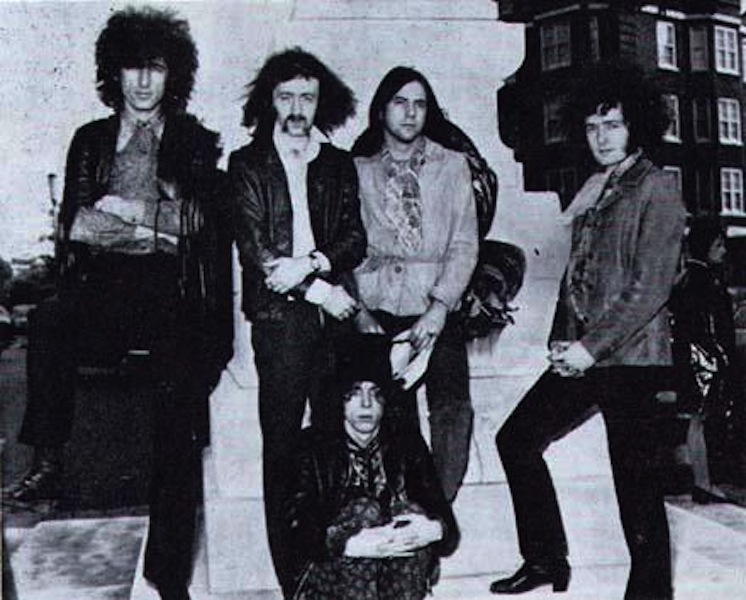 WT: Είχατε επαφή με εναλλακτικές κοινότητες όπως αυτές του Notting Hill και του Landbroke Grove και με συγκροτήματα όπως οι Deviants και οι Pink Fairies;
WT: Είχατε επαφή με εναλλακτικές κοινότητες όπως αυτές του Notting Hill και του Landbroke Grove και με συγκροτήματα όπως οι Deviants και οι Pink Fairies;
D.T.: Eίχα γίνει φίλος με τον Andrew Lauder από την United Artists, νομίζω ότι αυτός μου ανέφερε αρχικά τους Hawkwind. Θυμάμαι πως τους είδα κάπου κοντά στο Ladbroke Grove και μου άρεσε η φρεσκάδα τους, η «χύμα» φάση τους και ο ενθουσιασμός που δημιουργούσαν. Από εκεί γνώρισα τους τύπους από την Clearwater (Productions). Πάντα μου άρεσαν οι Deviants και τον Twink τον γνώριζα βέβαια από τότε που έπαιζε με τους Tomorrow.
WT: Κάνατε την παραγωγή στα πρώτα άλμπουμ των Hawkwind, Skin Alley και Cochise. Τι σας ώθησε να ασχοληθείτε με την παραγωγή και πώς σας φάνηκε η εμπειρία;
D.T.: Έχοντας δουλέψει με τον Norman με προσέλκυε η ιδέα να κάνω παραγωγές, οπότε άρχισα να ψάχνω για ενδιαφέροντα συγκροτήματα με τα οποία ένιωθα ότι μπορούσα να συνεργαστώ. Τα πήγαμε καλά με όλα τα παιδιά από τις μπάντες και ακούγοντας τώρα αυτούς τους δίσκους είμαι αρκετά ευχαριστημένος με το αποτέλεσμα.
WT: Περάσαν περίπου δέκα χρόνια πριν επανασυνδεθείτε με τους Pretty Things. Ποιες ήταν οι μουσικές σας δραστηριότητες κατά την περίοδο αυτή;
D.T.: Έκανα ένα διάλειμμα για κάποια χρόνια, παίζοντας κιθάρα μόνο για τον εαυτό μου, αλλά μου τυχαίνει πάντα να αποκτώ γείτονες που θέλουν να με βάζουν να ξαναπαίξω. Μετακόμισα στο Wimbledon και απέναντι από το σπίτι μας έμενε ένας φανταστικός στιχουργός και κιθαρίστας, ο Brian Holmes, του οποίου η αγοραφοβία δυστυχώς τον εμπόδιζε να κάνει συναυλίες. Φίλος του ήταν ένας νεαρός με το όνομα Julian Isaacs, με τον οποίο γίναμε πολύ καλοί φίλοι. Ο Jules μετονομάστηκε σε "Auntie Pus The Punk Baladeer". Πήγα μαζί του να δούμε τους Clash και μου ζήτησε να γίνω μέλος των Auntie and the Men from Uncle. Πώς να του το αρνηθώ; Ήταν μια τόσο απολαυστική περίοδος, κάναμε support για μπάντες όπως οι Ruts, The Damned και οι Subs. Συνειδητοποίησα πως υπάρχουν πολλοί καλοί μουσικοί εκεί έξω.
WT: Πώς επιστρέψατε στους Pretty Things;
D.T.: Κάποιος Ολλανδός επικοινώνησε μαζί μου και με ρώτησε εάν μπορούμε να κάνουμε μια συναυλία επανένωσης στο Alphen aan den Rijn. Τηλεφώνησα στον Phil και αυτός με τη σειρά του μάζεψε τους Pete Tolson, Jon Povey, Skip Alan και Wally Walker. Έκτοτε έχω παίξει σε όλες τις συναυλίες των Pretties.
WT: Λίγο μετά την επιστροφή σας, οι Pretty Things κυκλοφόρησαν το Cross Talk, ένα άλμπουμ με new wave/post punk επιρροές, ενώ στην δεκαετία του '80 παίξατε με τους Mekons. Ποια είναι η γνώμη σας για την «έκρηξη» του πανκ στα 70s σαν μουσικό και κοινωνικό κίνημα;
D.T.: Από την προηγούμενη απάντηση μου νομίζω πως καταλαβαίνετε πώς έβλεπα το κίνημα του πανκ. Ήταν σαν μια ανάσα καθαρού αέρα και προπάντων είχε πολύ πλάκα. Επίσης επανήλθε η νοοτροπία ότι οποιοσδήποτε μπορεί να παίξει μουσική, κάπως σαν την έκρηξη του skiffle, δεν χρειαζόταν να μπορείς να παίξεις χίλιες νότες το λεπτό για να εκφραστείς. Σε ό,τι αφορά τη φάση με τους Mekons, έπαιξα μαζί τους όσο μπορούσα, μου άρεσε ο τρόπος που επαναπροσδιοριζόντουσαν, είναι μια εξαιρετική ομάδα ατόμων και ήταν πάντα ευχαρίστηση μου να παίζω μαζί τους.
WT: Στις αρχές των 90s οι Pretty Things έβγαλαν δύο άλμπουμ με τον Jim McCarty. Πώς προέκυψε αυτή η συνεργασία;
D.T.: Ο George Paulus από το Σικάγο επικοινώνησε μαζί μας και είχε την ιδέα μιας συνεργασίας Yardbirds με Pretty Things. Kαταλήξαμε να γράψουμε δύο δίσκους, ενώ είχα και την μεγάλη χαρά να παίξω σε δίσκους του Andre Williams και των Eldorados. Ωραίες φάσεις.
WT: Η συναυλία στο Abbey Road για την τριακοστή επέτειο του S.F.Sorrow το 1998 αναμεταδόθηκε ζωντανά στο ίντερνετ. Τέτοιες αναμεταδόσεις ήταν σπάνιες τότε, πώς επιλέξατε να το κάνετε και ποια είναι η άποψη σας για τις νέες τεχνολογίες εικόνας και ήχου και τον τρόπο που αυτές επηρεάζουν την μουσική;
D.T.: Δεν είχαμε παίξει ποτέ το S.F.Sorrow σε ζωντανή εκτέλεση, το πρότεινε ο μάνατζερ και παραγωγός μας Mark St John, και ύστερα από κάποια αντίσταση και επιφύλαξη (όχι από εμένα ή τον Phil) συμφωνήσαμε να το προβάρουμε και, φαντάσου, τελικά δεν ήταν τόσο δύσκολο. Όλως παραδόξως, την πρώτη φορά που τραγούδησα το "Baron Saturday" ζωντανά με τους Pretty Things ήταν στην εκπομπή του Abbey Road, με κοινό απ' όλο τον πλανήτη. Πραγματικά χαίρομαι που μπήκαμε από νωρίς στη φάση της ζωντανής αναμετάδοσης από το ίντερνετ, το οποίο έχει φέρει επαναστατικές αλλαγές στην προσβασιμότητα της μουσικής. Πιστεύω ότι έχει μάλιστα βοηθήσει την αναβίωση του βινυλίου. Τώρα μπορεί ο κόσμος να κατεβάσει ή να ακούσει ό,τι τραβάει η όρεξή του, αλλά σε ό,τι αφορά αυτό που τους παθιάζει μπορούν να έχουν ένα αντικείμενο (βινύλιο) να αγαπήσουν που έχει και φοβερό ήχο (αν δεν το γραντζουνήσεις).
WT: Πώς νιώσατε παίζοντας το S.F. Sorrow τριάντα χρόνια μετά. Τι πιστεύετε ότι κάνει αυτό το υλικό διαχρονικό;
D.T.: Είχαμε ήδη παίξει κάποια κομμάτια από το άλμπουμ, αλλά ήταν καταπληκτικό το να μπαίνουν όλα σε μια σειρά, μέσα σε ένα γενικό πλαίσιο. Πραγματικά φαίνεται να έχει συνοχή και ροή, πολλά τραγούδια συνδέονται από τις κλίμακες που χρησιμοποίησαμε - όχι ότι το είχαμε συνειδητοποίησει τότε - και η αφήγηση βοήθησε πολύ.
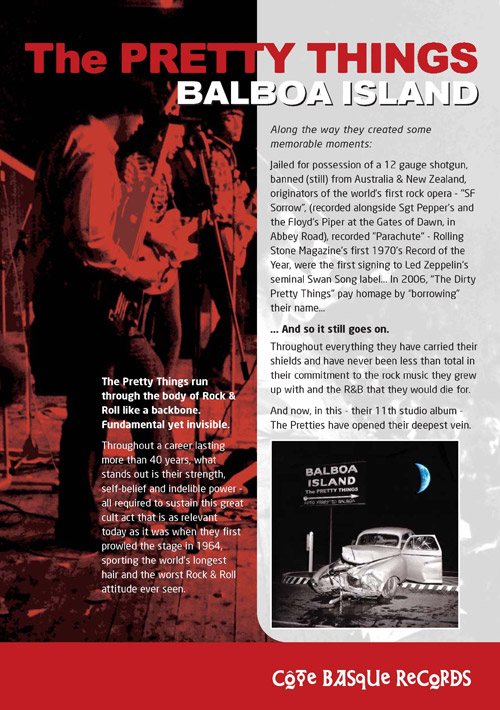 WT: Σ' αυτή τη ζωντανή αναμετάδοση έπαιξαν μαζί σας ο David Gilmour και ο Arthur Brown. Πώς προέκυψε αυτή η συνεργασία;
WT: Σ' αυτή τη ζωντανή αναμετάδοση έπαιξαν μαζί σας ο David Gilmour και ο Arthur Brown. Πώς προέκυψε αυτή η συνεργασία;
D.T.: Ο Phil και ο David ήταν φίλοι από καιρό, από τότε που ο Phil οργάνωνε τα sessions στην παμπ Bridge House στο Little Venice. Ο David Gilmour κατέβαινε συχνά να παίξει ροκ εντ ρολ μαζί μας, και σκεφτήκαμε ότι θα ήταν μια καλή κίνηση να τον φέρουμε ως έκτακτη συμμετοχή. Ως προς τον Arthur, είχε μάνατζερ και παραγωγό τον Mark, και βέβαια γνωρίζονταν για χρόνια. Μας φάνηκε ιδανικός για την αφήγηση με τη μειλίχια φωνή του, και έδειχνε μια χαρά πίσω από το αναλόγιο.
WT: Στο άλμπουμ Balboa Island ακούγεστε δυναμικοί και καίριοι, περισσότερο από πολλά νεαρότερα γκρουπ και με ζωντάνια που λείπει από πολλούς μουσικούς της γενιάς σας που συνεχίζουν να παίζουν. Τι είναι αυτό που κάνει τον ήχο σας τόσο ζωντανό και επίκαιρο;
D.T.: Πιστεύω ότι η σχετική έλλειψη μεγάλης χρηματικής επιτυχίας μας έχει βοηθήσει στο να παραμείνουμε αγωνιστές. Σίγουρα δεν το κάνουμε μόνο για τα λεφτά και πραγματικά γουστάρουμε αυτό που κάνουμε. Νομίζω ότι κατά βάθος ο Phil και εγώ είμαστε ακόμα μαθητές της τέχνης. Παίζουμε μουσική γιατί αγαπάμε να το κάνουμε.
WT: Ποια είδη μουσικής ακούτε σήμερα και ποια καινούργια γκρουπ ξεχωρίζουν για σας;
D.T.: Tα γούστα μου ποικίλουν όλο και περισσότερο. Είμαι σταθερός ακροατής διάφορων ιστοσελίδων όπως το Last.fm όπου μπορώ να πληκτρολογίσω κάποιο όνομα ή είδος μουσικής και να δω τι θα μου βγάλει. Τώρα τελευταία ενδιαφέρομαι για την βαλκανική μουσική, τους Carolina Chocolate Drops και το φανκ, μη με ρωτήσετε γιατί. Όσο για καινούργιες μπάντες, τις προάλλες είδα τους Redrock, ένα τρίο που δεν έχει ακόμα συμβόλαιο, με έναν φοβερά ταλαντούχο τραγουδιστή και κιθαρίστα, τον Kieran Hicks - να αναμένετε από αυτούς σπουδαία πράγματα. Έπαιξα και σε ένα άλμπουμ της Sacha Morgan, η οποία θα γίνει τόσο μεγάλη που της είπα να κάνει δίαιτα! Σοβαρά η τύπισα είναι καταπληκτική.
WT: Από τη δεκαετία του '90 χρησιμοποιείτε ανεξάρτητες εταιρείες για τις κυκλοφορίες σας. Σε τι διαφέρουν από τις μεγάλες δισκογραφικές;
D.T.: Οι ανεξάρτητες ενδιαφέρονται και δεν σε αφήνουν στο ράφι όταν αλλάζει o κυνηγός ταλέντων της εταιρείας. Όταν ηχογραφήσαμε το Crosstalk η Warner Bros το κυκλοφόρησε με τα ίδια κομμάτια και στις δύο πλευρές, στέλνοντας εν είδει συγνώμης στον Phil ενα τεράστιο κεφάλι τυρί. Η Snapper εἰναι άψογη, έχουν κάνει φανταστική δουλειά με τον κατάλογό μας.
WT: Η Fruits de Mer Records πρόσφατα κυκλοφόρησε το σινγκλ "Honey, I Need"/"I Can Never Say". Επίσης είχαμε παράλληλα και την κυκλοφορία του Sorrow's Children, με ερμηνείες κομματιών του S.F. Sorrow από καινούργια συγκροτήματα, από την ίδια εταιρεία, ενώ στις 6 Ιουλίου στο Λος Άντζελες έγινε η πρεμιέρα του ντοκιμαντέρ Midnight to Six. Δημιουργείται ένα αυξανόμενο ενδιαφέρον γύρω από τους Pretty Things. Ο David Gilmour είχε πει πριν από μερικά χρόνια ότι έχει έρθει ο καιρός για την αναγέννηση των Pretty Things. Συμφωνείτε με αυτό;
D.T.: Όντως πιστεύω ότι βρισκόμαστε σε ένα καλό σημείο τώρα και έχουν συμβάλλει διάφοροι παράγοντες γι' αυτό. Ο Mark St John έχει δουλέψει πολύ σκληρά για να μας προωθήσει, η σκηνή vintage/mod είναι πολύ δυνατή και συγκροτήματα όπως οι Kasabian μας αναφέρουν ως βασική επιρροή. Παίζουμε σε μέρη όπου ο κόσμος έρχεται να διασκεδάσει. Το YouTube έχει βοηθήσει πάρα πολύ, όλα δείχνουν ότι τραβάμε ένα νεαρό ακροατήριο και ο George Perez μαζί με τον Jack Greenwood, το νεαρό μας rhythm section, δίνουν ζωντάνια και ενέργεια στις συναυλίες μας.
WT: Ετοιμάζετε υλικό για κάποιο νέο στούντιο άλμπουμ;
D.T.: Και πάλι λέω, αναμείνατε...
WT: Κύριε Taylor ευχαριστούμε πολύ για το χρόνο σας. Είναι τιμή μας να σας έχουμε στο Wild Thing.
D.T.: Eγώ σας ευχαριστώ.
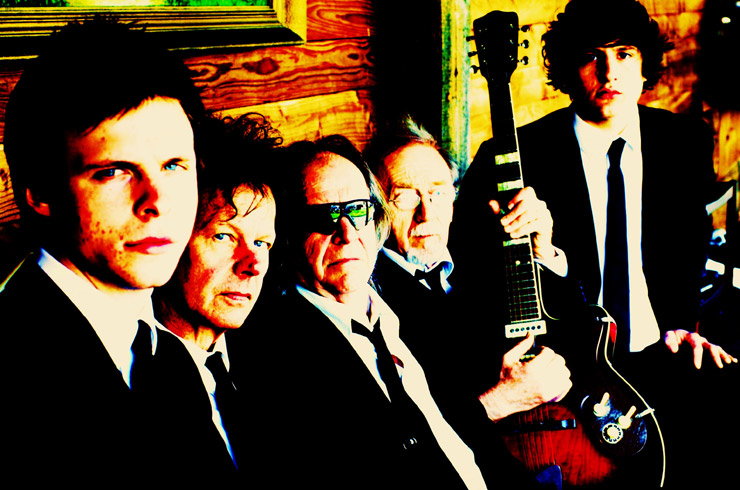
Η συνέντευξη του Phil May
(σσ. Κάποιες ερωτήσεις μας επανελαμβάνονται και στους δύο για να ανιχνεύσουμε τις πιθανές διαφορετικές προσεγγίσεις και όντως κάποιες φορές, όπως είναι φυσικό, υπάρχουν διαφορετικές οπτικές ή αναμνήσεις.)
Wild Thing: Σε ποια ηλικία ξεκινήσε το ενδιαφέρον σας για την μουσική και πώς αποφασίσατε να γίνετε τραγουδιστής;
Phil May: Στην ίδια ηλικία που ξεκίνησε το ενδιαφέρον μου για το σεξ... μου φαίνονταν εγγενώς συνδεδεμένα. Δεν διάλεξα εγώ να γίνω τραγουδιστής, το τραγούδι διάλεξε εμένα.
WT: Ποιες ήταν οι μουσικές επιρροές σας;
Ph.M.: Ενηλικιώθηκα φωνητικά με τους Elvis Presley, Little Richard, Eddie Cochran και όλο το πάνθεον του rhythm & blues. Αυτή ήταν η μουσική μου εκπαίδευση.
WT: Πριν από τους Pretty Things παίζατε με άλλα συγκροτήματα;
Ph.M.: Όχι, ως τραγουδιστής ήμουν παρθένος πριν από τους Pretty Things.
WT: Ποιοι λόγοι οδήγησαν πολλούς βρετανούς μουσικούς της γενιάς σας στο να παίξουν blues, rhythm & blues και μαύρη μουσική γενικότερα;
Ph.M.: Νομίζω ότι υπήρχε μία, από την μεριά μας αντιληπτή, συναισθηματική ταύτιση με τους μαύρους μουσικούς του μπλουζ λόγω του ότι και οι δύο πλευρές ήταν περιθωριοποιημένες και χωρίς δικαιώματα. Προφανώς στην περίπτωση των μαύρων καλλιτεχνών δεν υπάρχει σύγκριση με τις μαλακίες που έπρεπε να ανέχονται. Όλα αυτά βγήκαν στην επιφάνεια αργότερα.
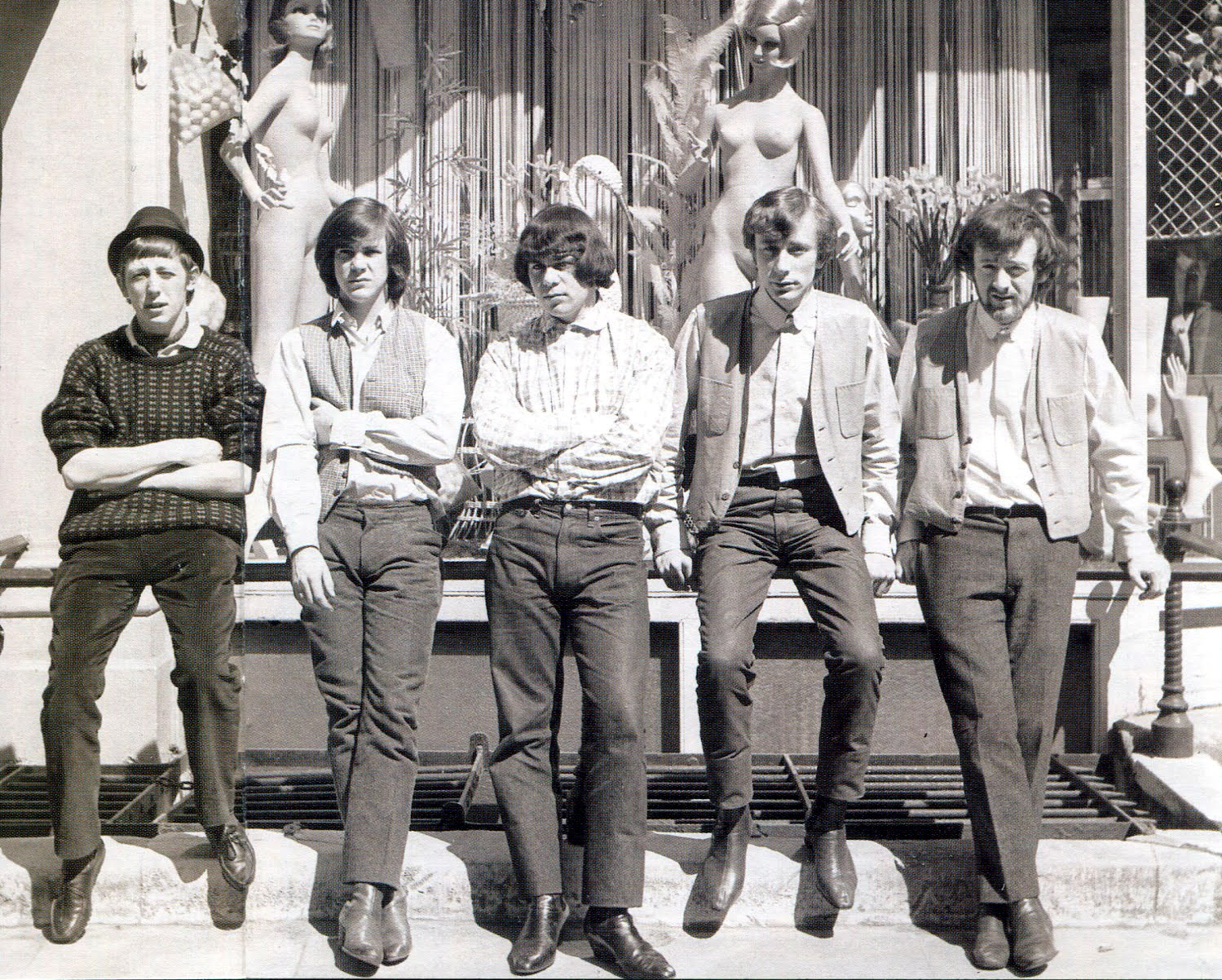 WT: Από το ξεκίνημα σας η μουσική των Pretty Things ήταν ακατέργαστη, ο ήχος σας και η στάση ζωής σας ήταν πιο «άγρια» απ' τα υπόλοιπα γκρουπ της εποχής.
WT: Από το ξεκίνημα σας η μουσική των Pretty Things ήταν ακατέργαστη, ο ήχος σας και η στάση ζωής σας ήταν πιο «άγρια» απ' τα υπόλοιπα γκρουπ της εποχής.
Ph.M.: Δεν ήμασταν ποτέ ιδιαίτερα ευλαβείς στην προσέγγιση μας με το μπλουζ. Για μας ήταν απλά ένα σημείο εκκίνησης όσον αφορά την έμπνευση. Αποφεύγαμε να αντιγράφουμε πιστά τις ηχογραφήσεις των ηρώων μας, ενώ πολλά άλλα συγκροτήματα έπεσαν σε αυτή την παγίδα. Μας κατηγόρουσαν ότι παίζαμε thrash r&b, μια ταμπέλα για την οποία είμαι περήφανος.
WT: Τα δύο πρώτα σας άλμπουμ είναι απ' τα καλύτερα και επιδραστικότερα της εποχής. Τι έκανε αυτά τα άλμπουμ τόσο σημαντικά;
Ph.M.: Έχει να κάνει με την απάντηση που έδωσα στην προηγούμενη ερώτηση. Οι ηχογραφήσεις αυτές ήταν ακατέργαστες, με υψηλή δυναμική και τόσο ζωντανές που ξεπήδανε απ' τα αυλάκια του δίσκου.
WT: Στα μέσα των 60s πολλές από τις συναυλίες σας είχαν έντονες επεισοδιακές στιγμές. Είναι κάποιες που θυμάστε περισσότερο;
Ph.M.: Υπάρχουν πολλές αλλά μία που ξεχωρίζει είναι αυτή με την φωτιά σε ένα θέατρο στην Νέα Ζηλανδία. Οι τοπικές αρχές έκαναν το υπέρτατο λάθος να διακόψουν την συναυλία μας. Οι θεατές αγρίεψαν, έσπασαν τα καθίσματα και τους έβαλαν φωτιά ως ένδειξη διαμαρτυρίας.
WT: Συγκροτήματα όπως εσείς, οι Stones, οι Them, οι Yardbirds κ.λπ. επηρέασαν μια ολόκληρη γενιά αμερικανικών γκρουπς. Παρακολουθήσατε την γκαράζ σκηνή; Σας άρεσαν κάποιες από αυτές τις μπάντες;
Ph.M.: Εκείνη την εποχή όχι. Αργότερα μάθαμε γι' αυτά μέσω περιοδικών όπως το Ugly Things του Mike Stax.
WT: Για ποιούς λόγους δεν κάνατε περιοδείες στις ΗΠΑ την δεκαετία του '60;
Ph.M.: Ο τότε μάνατζερ μας Brian Morrison αποφάσισε να το παίξει σκληρός με τους αμερικανούς ατζέντηδες, όπως η εταιρεία William Morris και μερικές άλλες που μας ήθελαν για περιοδεία εκεί. Τελικά η υπεροψία του στοίχισε στο συγκρότημα.
WT: Όταν το 1966 ο Bob Dylan ήρθε στην Αγγλία, ζήτησε να σας συναντήσει. Ήταν φαν του συγκροτήματος σας; Εσείς επηρεαστήκατε από αυτόν στιχουργικά;
Ph.M.: Ισχύουν και τα δύο. Ίσως ήδη σκεφτόταν να το γυρίσει στον ηλεκτρικό ήχο. Είχε πει ότι λάτρευε τον ήχο του πρώτου μας άλμπουμ. Σαν στιχουργός έσπασε το καλούπι που υπήρχε. Νομίζω ότι έμαθε και μερικά πράγματα από τον Chuck Berry όπως κι εγώ.
WT: Ήσαστε το πρώτο συγκρότημα που γράψατε τραγούδι με τον τίτλο "LSD". Πού αναφερόταν στ'αλήθεια αυτό το κομμάτι; (σσ. έχουν κατά καιρούς ακουστεί και γραφτεί γι' αυτό διάφορες απίθανες ιστορίες)
Ph.M.: Στο LSD! Δοκιμάσαμε να τους παραπλανήσουμε με το σύμβολο της αγγλικής λίρας αλλά και πάλι το απαγορεύσαν...
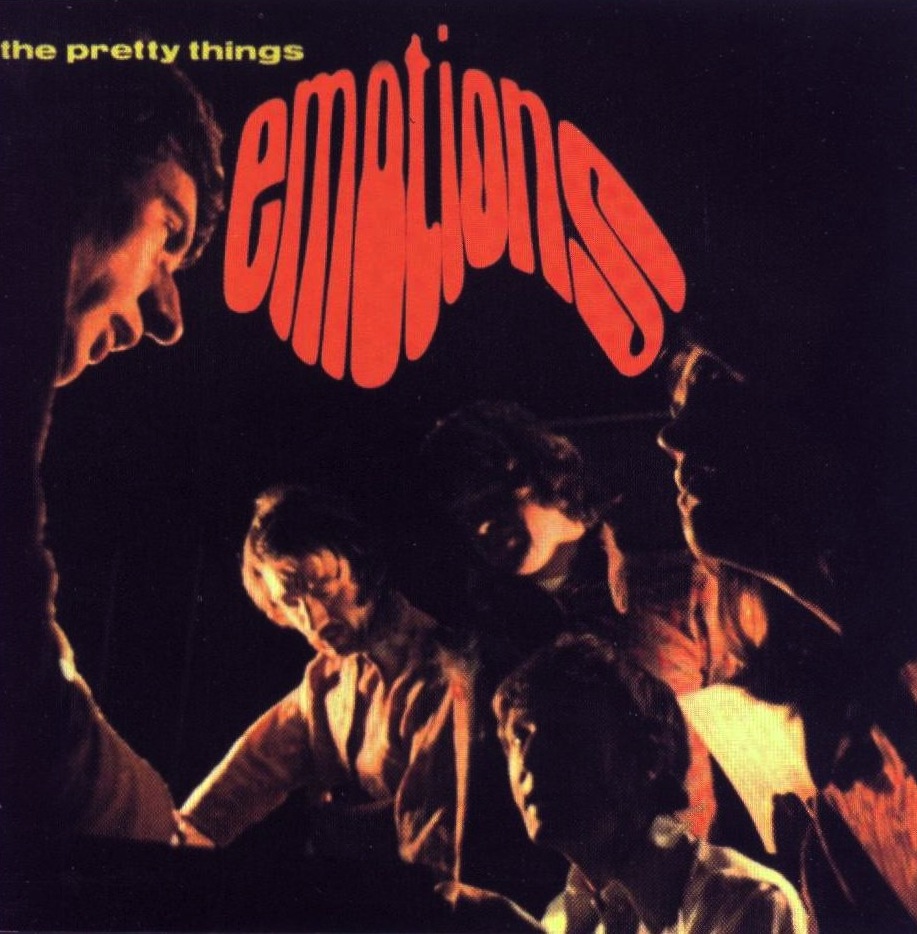 WT: Με το άλμπουμ σας Emotions του 1967, η μουσική σας μπήκε σε μία ψυχεδελική και πειραματική φάση που είχε αποκορύφωμα το S.F. Sorrow του 1968. Τι έφερε αυτή την αλλαγή;
WT: Με το άλμπουμ σας Emotions του 1967, η μουσική σας μπήκε σε μία ψυχεδελική και πειραματική φάση που είχε αποκορύφωμα το S.F. Sorrow του 1968. Τι έφερε αυτή την αλλαγή;
Ph.M.: Η ανάγκη να επεκταθούμε και να ξεφύγουμε από την φάση του σινγκλ. Θέλαμε να αναπτυχθούμε. Αν δεν είχαμε κάνει αυτό το βήμα, νομίζω ότι η μπάντα θα είχε τελειώσει.
WT: Πώς ήταν η ατμόσφαιρα του 'swinging London'; Ποιοι από τους σύγχρονους σας μουσικούς σας άρεσαν;
Ph.M.: Λένε ότι αν το θυμάσαι, δεν ήσουν εκεί. Υπήρχαν τόσες πολλές καλές φάσεις τότε και οι μπάντες επηρέαζαν η μία την άλλη.
WT: Ποια αμερικανικά ψυχεδελικά συγκροτήματα σας άρεσαν;
Ph.M.: Buffalo Springfield, Iron Butterfly, Captain Beefheart, The Doors, Jefferson Airplane. Πολλά και διάφορα.
WT: Τι σας ενέπνευσε για να γράψετε την ιστορία του S.F. Sorrow;
Ph.M.: Εκείνη την περίοδο έγραφα πολλά πεζά και ποίηση. Με είχε συναρπάσει η μουσικότητα και ο ρυθμός των ίδιων των λέξεων. Έτσι συνέπεσε η ανάγκη μας για ένα βασικό θέμα και μια μικρή ιστορία πάνω στην οποία δούλευα τότε.
WT: Εσείς είχατε σχεδιάσει το εξώφυλλο του άλμπουμ. Ζωγραφίζετε ακόμα;
Ph.M.: Ναι, ποτέ δεν σταμάτησα αφότου έφυγα απ' τη σχολή Καλών Τεχνών. Πάντα κουβαλάω ένα σημειωματάριο όταν είμαστε σε περιοδεία, στο οποίο επίσης σημειώνω ιδέες για στίχους. Ετοιμάζω μία έκθεση με την ζωγραφική μου, κάποια δείγματα αυτής θα μπούνε στην ιστοσελίδα μας όταν την αναρτήσουμε.
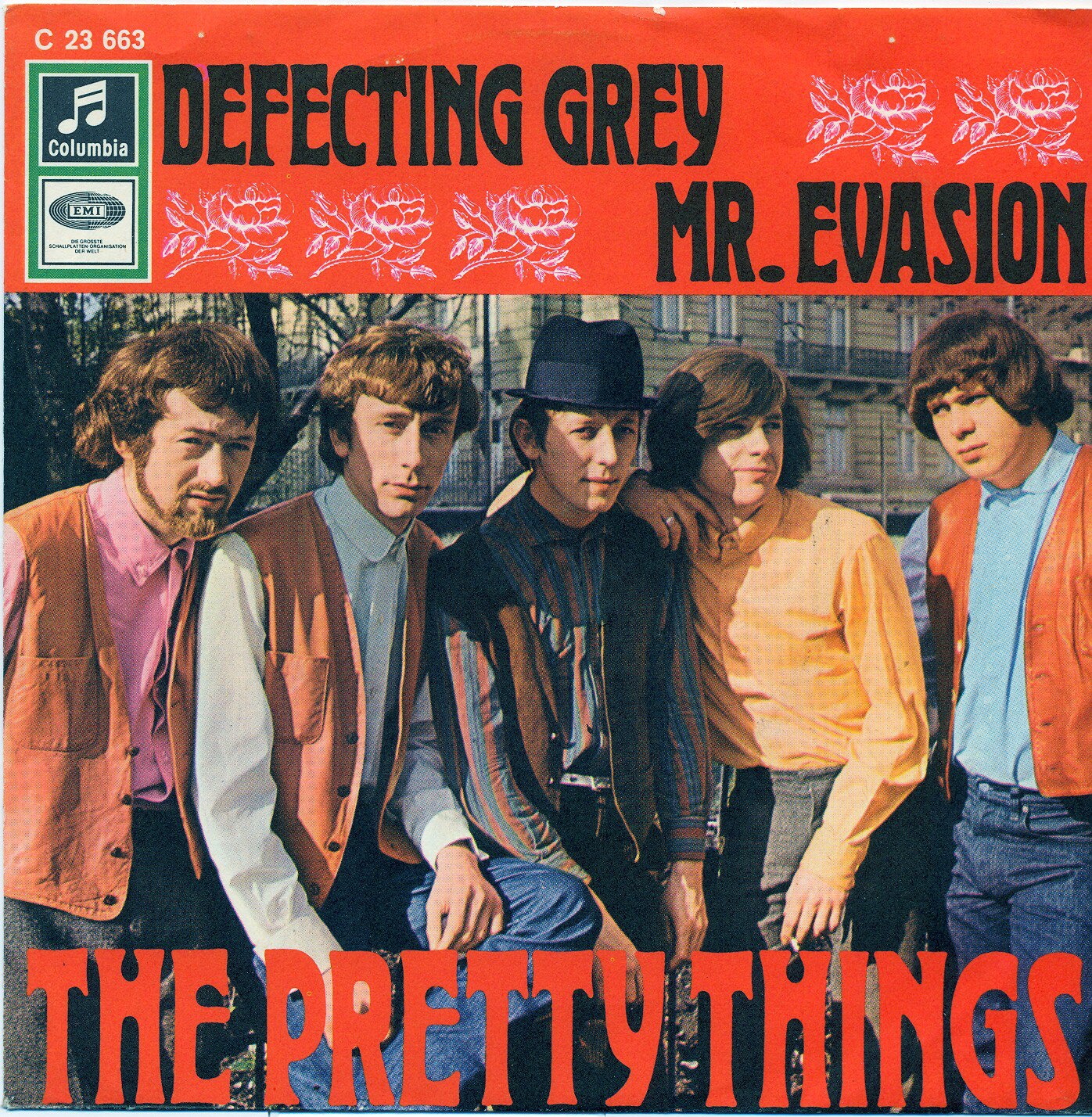 WT: Θα θέλατε να μοιραστείτε μαζί μας κάποιες αναμνήσεις σας από την ηχογράφηση του S.F. Sorrow;
WT: Θα θέλατε να μοιραστείτε μαζί μας κάποιες αναμνήσεις σας από την ηχογράφηση του S.F. Sorrow;
Ph.M.: Μάλλον θα πρέπει να περιμένετε την κυκλοφορία του βιβλίου που ετοιμάζω... Το σίγουρο είναι πως σπανίως φεύγαμε από το στούντιο πριν χαράξει, ήμασταν τόσο πολύ απορροφημένοι σε αυτό που κάναμε.
WT: Όταν ηχογραφούσατε το S.F. Sorrow στο Abbey Road, οι Beatles έγραφαν το White Album και οι Pink Floyd (με τους οποίους είχατε τον ίδιο παραγωγό Norman Smith) το Saucerful οf Secrets. Ποια ήταν η σχέση σας με αυτά τα συγκροτήματα και πώς ήταν η ατμόσφαιρα στο στούντιο;
Ph.M.: Είχαμε ξαναβρεθεί μερικές φορές με τους Beatles και έτσι το κλίμα ήταν πολύ φιλικό, παρότι, όπως οι περισσότεροι, νιώθαμε κάποιο δέος για τους Fab Four. Ο Lennon πάντα πεταγόταν στο στούντιο που ηχογραφούσαμε για να μας ακούσει όταν έφτανε στο Abbey Road. Με τους Floyd είχαμε τους ίδιους ατζέντηδες και κατά τη διάρκεια των ηχογραφήσεων ήρθαμε αρκετά κοντά.
WT: H αμερικάνικη κυκλοφορία του S.F. Sorrow από την Tamla Motown συνάντησε κάποιες δυσκολίες με αποτέλεσμα την καθυστέρηση της κυκλοφορίας. Επίσης δεν προωθήθηκε σωστά. Τι συνέβη;
Ph.M.: Τα πράγματα είναι απλά. Η ΕΜΙ μας έμπλεξε με την Tamla τελείως ενάντια στη δική μας θέληση. Τα κάνανε μαντάρα με το λανσάρισμα των Rare Earth και εμείς πληρώσαμε τη νύφη.
WT: Το 1969 ηχογραφήσατε με τον Philippe Deborge. Πείτε μας γι' αυτές τις ηχογραφήσεις.
Ph.M.: Ο Philippe Deborge ήταν μεγάλος φαν των Pretty Things και εκατομμυριούχος. Αρχικά ήθελε να του γράψουμε ο Wally Waller και εγώ κάποια τραγούδια για το δίσκο του και τελικά συμμετείχε και η υπόλοιπη μπάντα στην ηχογράφηση. Ήταν ένας γλυκύτατος τύπος και η αυτοκτονία του, στη συνέχεια, μας σόκαρε όλους.
WT: Μαζί με τους Pretty Things κάνατε δίσκους και ως Electric Banana. Αυτό ήταν ένα όχημα μόνο για μουσική για ταινίες ή επεκτάθηκε σα φάση;
Ph.M.: Αρχικά προοριζόταν μόνο για ταινίες και τηλεόραση. Έγινε όμως καλτ δίσκος όταν οι πιτσιρικάδες που δούλευαν στις αποθήκες άρχισαν να το πουλάνε από τη «πίσω πόρτα».
 WT: Το Parachute ήταν το πρώτο άλμπουμ που ηχογραφήσατε μετά την αποχώρηση του Dick Taylor. Τι άλλαξε όταν έφυγε;
WT: Το Parachute ήταν το πρώτο άλμπουμ που ηχογραφήσατε μετά την αποχώρηση του Dick Taylor. Τι άλλαξε όταν έφυγε;
Ph.M.: Βασικά το καράβι συνέχισε την πορεία του...
W.T.: Το Parachute είναι ένα είδος μουσικής γέφυρας μεταξύ της ψυχεδελικής σας περιόδου και τον ήχο που εξελίξατε στα 70s.
Ph.M.: Φαντάζομαι πως ναι. Δεν έχεις πάντως συνείδηση μιας εξέλιξης όταν βρίσκεσαι στα μέσα της. Η μπάντα ξεπερνούσε τη κλωτσιά που έφαγε με το S.F.Sorrow. [Ακολουθήσαμε το ρητό¨] Ξεσκονίσου ξανανέβα στη σέλα...
WT: Με το Freeway Μadness (1972) κινηθήκατε προς μια διαφορετική κατεύθυνση που συνεχίστηκε με τα Silk Torpedo (1974) και Savage Eye (1976). Πείτε μας κάποια πράγματα για αυτές τις κυκλοφορίες και την περίοδο των 70s.
Ph.M.: Μου φαίνεται πως σας δίνω συνέχεια την ίδια απάντηση, αλλά απλά το συγκρότημα συνεχώς εξελισσόταν. Αλλαγές στο line up, αλλαγές στο τρόπο σκέψης μας κ.τ.λ.
WT: Το 1978 ηχογραφήσατε ένα σόλο άλμπουμ με τους Fallen Angels που είναι και η μόνη προσωπική σας δουλειά. Πώς νιώσατε ηχογραφόντας χωρίς τους Pretty Things;
Ph.M.: Ναι, ήταν το μόνο σόλο άλμπουμ μου. Πώς ένιωσα; Διαφορετικά... αλλά πάλι μουσική έκανα.
WT: Το 1980 κυκλοφορήσατε το Cross Talk το οποίο έχει πολλά στοιχεία new wave/post punk. Ποια είναι η άποψη σας για το πανκ ως μουσικό και κοινωνικό φαινόμενο; Ο Joey Ramone και ο Joe Strummer, μεταξύ άλλων, έχουν εκφράσει το θαυμασμό τους για τους Pretty Things.
Ph.M.: Το πανκ για μένα ήταν μια άκρως απαραίτητη ανάσα καθαρού αέρα καθώς η μουσική βιομηχανία είχε κορεστεί. Το Cross Talk είναι σίγουρα η συμβολή μας στο πανκ. Μαζί με το S.F. Sorrow και το πρώτο μας άλμπουμ είναι τα πιο αγαπημένα μου. Αν είχαμε κάποια επιρροή στο πανκ, έχει καλώς. Πάντως αυτή ήταν αμφίδρομη.
WT: Μετά το Cross Talk στα 80s κυκλοφορήσατε το Live at the Heartbreak Hotel και το Out of the Island. Αυτές οι ζωντανές ηχογραφήσεις σηματοδότησαν την επιστροφή στον κλασικό ήχο σας των 60s;
Ph.M.: Όχι ακριβώς. Και οι δύο είναι προϊόν μιας σειράς διαφορετικών συνεργασιών που κάναμε ο Dick και εγώ με άλλους μουσικούς.
WT: Στις αρχές των 90s κάνατε δύο δίσκους με τον Jim McCarty (ντράμερ των Yardbirds και των Renaissance). Πείτε μας για αυτή τη συνεργασία και το μουσικό υλικό που χρησιμοποιήσατε.
Ph.M.: Αυτό ήταν ένα πρότζεκτ του George Paulus... να φέρει τρεις βρετανούς μουσικούς rhythm & blues στο Σικάγο να παίξουν και να ηχογραφήσουν με ντόπιους μουσικούς. Ξέρω ότι έπαιζε πολύ κόκα... Ήταν μια ενδιαφέρουσα εμπειρία.
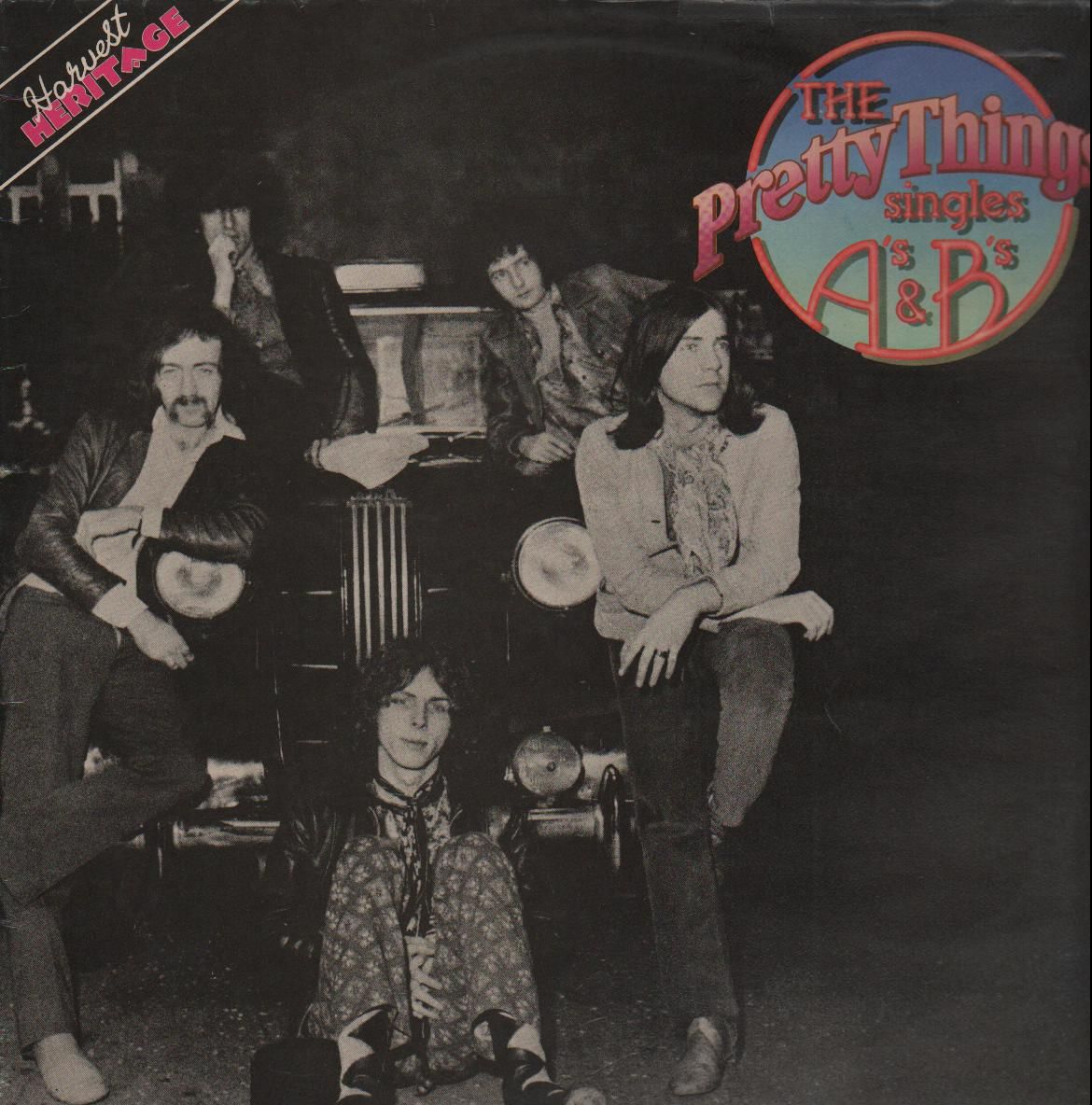 WT: Το 1998 κάνατε την λάιβ ηχογράφηση για το S.F. Sorrow στο Abbey Road με τους David Gilmour και Arthur Brown. Η συναυλία αναμεταδόθηκε ζωντανά μέσω ίντερνετ. Πώς νιώσατε παίζοντας ολόκληρο το άλμπουμ μετά από τριάντα χρόνια;
WT: Το 1998 κάνατε την λάιβ ηχογράφηση για το S.F. Sorrow στο Abbey Road με τους David Gilmour και Arthur Brown. Η συναυλία αναμεταδόθηκε ζωντανά μέσω ίντερνετ. Πώς νιώσατε παίζοντας ολόκληρο το άλμπουμ μετά από τριάντα χρόνια;
Ph.M.: Ήταν φοβερά αγχωτικό, ειδικά η ζωντανή παγκόσμια αναμετάδοση στο ίντερνετ. Μας βοήθησαν οπωσδήποτε οι δύο πολύ καλοί φίλοι μας, ο David και ο Arthur, με την συμμετοχή τους. Ήταν η αρχή της πραγματικής αναβίωσης του S.F. Sorrow.
WT: Πώς αποφασίσατε να κάνετε χρήση ζωντανής αναμετάδοσης από το ίντερνετ την εποχή που αυτό ήταν κάτι σπάνιο;
Ph.M.: Δεν έχω ιδέα... δεν τα πάω καθόλου καλά με την τεχνολογία.
WT: Είναι αλήθεια ότι ο δίσκος Rage Before Beauty (1999) σας πήρε 19 χρόνια για να ολοκληρωθεί;
Ph.M.: Θα τα βρείτε όλα αυτά στο βιβλίο μου (σσ. που έχει γράψει κι ετοιμάζεται να κυκλοφορήσει). Δυστυχώς δεν μπορώ να συμπυκνώσω 19 χρόνια σε μια απάντηση.
WT: Αληθεύει ότι ο αρχικός τίτλος του δίσκου ήταν Fuck Oasis and Fuck You;
Ph.M.: Nαι...
WT: Ένα απ' τα κομμάτια αυτού του δίσκου είναι αφιερωμένο στον Vivian Prince, τον ντράμερ σας στα μεσα των 60s. Γιατί έφυγε από το συγκρότημα;
Ph.M.: Ήταν πολύ καταστροφικός για να δουλέψεις μαζί του... Τον αγαπούσα τον τρελάρα, αλλά έπρεπε να φύγει…
WT: Στον δίσκο Balboa Island (2007) ακούγεστε περισσότερο δυναμικοί και ζωντανοί σε σχέση με αρκετά νέα συγκροτήματα. Τι είναι αυτό που κάνει και τον τωρινό σας ήχο τόσο φρέσκο και επίκαιρο;
Ph.M.: Πραγματικά δεν ξέρω. Πάντα κοιτάμε να ξεπεράσουμε τους εαυτούς μας... και αν δεν έχουμε κάτι αξιόλογο να πούμε, δεν το ηχογραφούμε.
WT: Το τραγούδι "All Light Up" αναφέρεται στη δεκαετία του '60. Ποια είναι η σημερινή σας άποψη για τον μύθο της εποχής εκείνης; Επίσης, κάπου διάβασα ότι το ίδιο τραγούδι είναι αφιερωμένο στην πρόσφατη απαγόρευση του καπνίσματος σε όλους τους δημόσιους χώρους, στα μπαρ κ.λπ. Αληθεύει;
Ph.M.: Ήμασταν ανίδεοι τότε αλλά δεν θα έχανα αυτή την εμπειρία για τίποτε. Ήταν μια μοναδική περίοδος. Ναι, το κομμάτι διαμαρτυρόταν για τα δικαιώματα των καπνιστών στην Βρετανία.
WT: Ξεχωρίζετε κάποια καινούργια συγκροτήματα;
Ph.M.: Θα ήθελα να απαντήσω θετικά αλλά δυστυχώς...
WT: Από την δεκαετία του '90 οι δίσκοι σας κυκλοφορούν σε ανεξάρτητες εταιρείες. Ποια η διαφορά με τις μεγάλες πολυεθνικές;
Ph.M.: Βασικά μεγαλύτερη ελευθερία και περισσότερος έλεγχος στα δικά μας χέρια.
WT: Ο David Gilmour πριν λίγα χρόνια είπε ότι «σίγουρα ο καιρός για την αναγέννηση των Pretty Things έχει έρθει». Συμφωνείτε με αυτό;
Ph.M.: Ναι!
WT: Ετοιμάζετε αυτή τη στιγμή υλικό για κάποιο νέο στούντιο άλμπουμ;
Ph.M.: Υπάρχει πολύ υλικό που περιμένει να βγει στο φως της ημέρας. Και ναι, αναμείνατε μέχρι νεωτέρας...
[O α/σ: Αυτά. Για το φτωχό και ταπεινό Wild Thing γράφτηκε ιστορία. Οι άνθρωποι αυτοί είναι οι προπάτορες όλων μας, ανεξαρτήτως του είδους του ροκ που ακούμε. Τώρα το μόνο που μπορούμε να ελπίζουμε είναι να τους δούμε σε κάποια σκηνή στην Αθήνα. Μια τελευταία λέξη μου έρχεται στο μυαλό: Respect.]
|
|
Στις 15 Αυγούστου η Fruits de Mer Records κυκλοφόρησε σε περιορισμένη έκδοση 1200 αντιτύπων ένα 7ιντσο EP με τρία τραγούδια από το ιστορικό άλμπουμ των Pretty Things S.F. Sorrow, ηχογραφημένα ζωντανά στις 17 Δεκεμβρίου του 2012 στο '100 Club', τα: "S.F. Sorrow is Born" / "She Says Good Morning" / "Baron Saturday". To EP συμπληρώνει μια συλλεκτική ζωντανή διασκευή από τους Pretties του "Renaissance Fair" των Byrds, ηχογραφημένη στο Άμστερνταμ το 1969. Κατά την εταιρεία το EP με τίτλο S.F. Sorrow Live in London είναι απλά η πρόγευση για το 12ιντσο άλμπουμ με το πλήρες σετ που ηχογραφήθηκε στο 100 Club, το οποίο αναμένεται... (απ' το Wild Thing σίγουρα με αγωνία). Καθώς αυτή είναι η τρίτη σχετική κυκλοφορία από τη Fruits de Mer, η καλή εταιρεία αξίζει συγχαρητηρίων για την προσπάθειά της να ξαναφέρει στην επιφάνεια το ιστορικό αυτό συγκρότημα προς όφελος των νεώτερων γενεών rock fans. Η τωρινή σύνθεση του γκρουπ είναι: Phil May (φωνή), Dick Taylor (lead κιθάρα), Frank Holland (κιθάρες), George Perez (μπάσο) και Jack Greenwood (κρουστά). |
Ακολουθεί το κείμενο της συνέντευξης στα Αγγλικά:
Whatever we may say about The Pretty Things is just not enough. A band of such importance that few others have achieved in the history of rock and roll, their influence reaches our days and spreads across nearly the whole gamut of the genre's branches. This momentous British band - highly creative during the 60s when they recorded historic albums like 'Get the Picture?' (1965) and 'S.F. Sorrow' (1968) - has been forging ahead (with a few intervals) and is just as vigorous today.
Early this summer Fruits de Mer Records released the single "Honey I Need"/"I Can Never Say", which is kind of a remake of their third single. The A side is from the 2010 gig at the 100 Club, where the band played the whole of their first album, soon to be released by the same label on vinyl. The B side is an unreleased demo from 1965. Also from Fruits de Mer comes the release of 'Sorrow's Children', a tribute to the Pretty Things and their masterpiece 'S.F. Sorrow' by new bands. As David Gilmour said a few years back "the time has definitely come for their renaissance". It is a great honour for Wild Thing to present the interviews given to us by Mr. Dick Taylor and Mr. Phil May.
The Dick Taylor interview
Wild Thing: At what age did you begin playing music and what attracted you to the guitar?
Dick Taylor: It must have been '54 - aged 11 - that a couple of my friends bought plastic ukuleles and I started to plonk around on one of them. My grandad was a brilliant amateur player of any instrument he laid his hands on, particularly stringed ones. I always felt like the musically inept one of my family; skiffle and rock and roll seemed to have a simplicity I could understand and gave me a way into playing; then I heard the blues and knew what I wanted to play.
WT: Which musicians have influenced your guitar playing?
D.T.: Chuck (Berry), Bo (Diddley), Muddy (Waters), and most of all Hubert Sumlin. The first blues player I really listened to was Big Bill Broonzy; it was he whom I first tried to emulate (not very well probably).
WT: The British r&b/blues scene took off in the late 50s / early 60s. What do you believe made your generation turn to black American music?
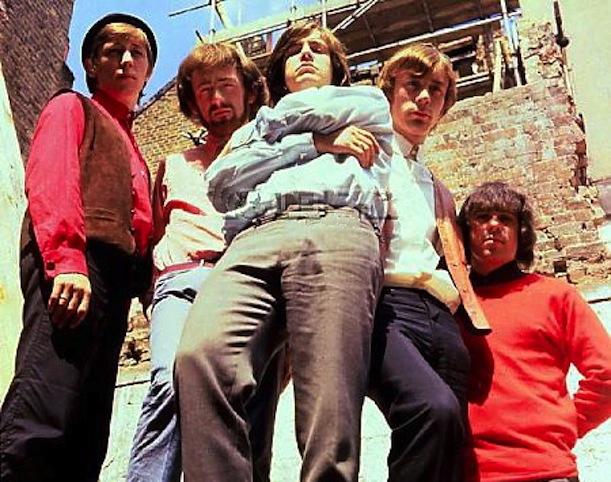 D.T.: I think black music came to the UK from a lot of different routes, the trad jazz scene of the 50s actually led to people like Sister Rosetta and Muddy Waters coming over thanks to Chris Barber. The folk scene wasn't just guys singing with their finger in their ear, part of that whole left-wing scene was very much anti colour bar and segregation; so naturally people like Leadbelly and Sonny Terry and Brownie McGhee were listened to. For my part, I was listening to jazz (trad and modern), folk and rock and roll; blues was an integral part and a basis for a lot of the other stuff. Just being able to hear exciting and brilliant music, when a lot of the stuff on the radio up till then had been so dull, was probably the biggest thing; particularly when rock and roll became watered down, why listen to Pat Boone when you can hear Little Richard?
D.T.: I think black music came to the UK from a lot of different routes, the trad jazz scene of the 50s actually led to people like Sister Rosetta and Muddy Waters coming over thanks to Chris Barber. The folk scene wasn't just guys singing with their finger in their ear, part of that whole left-wing scene was very much anti colour bar and segregation; so naturally people like Leadbelly and Sonny Terry and Brownie McGhee were listened to. For my part, I was listening to jazz (trad and modern), folk and rock and roll; blues was an integral part and a basis for a lot of the other stuff. Just being able to hear exciting and brilliant music, when a lot of the stuff on the radio up till then had been so dull, was probably the biggest thing; particularly when rock and roll became watered down, why listen to Pat Boone when you can hear Little Richard?
WT: You started out with the early Rolling Stones. What was the reason you left them? What are your lasting impressions from this collaboration?
D.T.: I had been playing in Little Boy Blue with Mick Jagger (and later Keith Richards) for some time before we met up with Brian (Jones) and Ian Stewart. Brian suggested I play bass, I felt a bit frustrated with not playing guitar, but enjoyed what we were doing a lot. I was trying to get into the Royal College of Art and knew I had a lot of work to do; so I decided to leave.
I had really enjoyable time in the Stones, there was a lot of humour and we all seemed to enjoy one another's company, the music was pretty cool too.
WT: You met Phil May at Art School and put together the Pretty Things. Right from the beginning the music of the Pretty Things had a raw edge. You were rougher in sound and attitude than other bands of the same era. What brought this about?
D.T.: Phil was always a phenomenal performer, a lot of our rawness came from his stage presence. Also we started off by playing for our art school friends who wanted to have a wild time and we wanted to get across the rawness we loved about a lot of the r&b we were listening to.
WT: From the first recordings your use of the acoustic guitar is distinctive, creating a personal sound. Tell us a few things about this and about the guitar equipment you like to use, both in the studio and in concert.
D.T.: My first guitar was an acoustic; as soon as I had enough money I bought A Gibson twelve-string, which was on a lot of our early recordings, either with twelve or six strings on it; in fact it was the only acoustic we ever used, right up to S.F. Sorrow. Unfortunately it eventually got nicked out of Hawkwind's van; they did give me the money for it, but it was sorely missed (it's also on "Hurry on Sundown"). Nowadays I use my wife's acoustic which is a very old Grammer guitar which was actually made for Dolly Parton; I always use it for our "Blues Bit", which we do in the middle of our shows. For electric I use A Hutchins Regal guitar which is based on an old Harmony; it has a very distinctive sound, particularly though the ancient Selmer Zodiac amp that I use. Mark St John, our manager and producer, has a pretty huge collection of guitars and amps which we dip into in the studio - they are too numerous to list here - but if I can get him to will them to me I might have to bump him off!
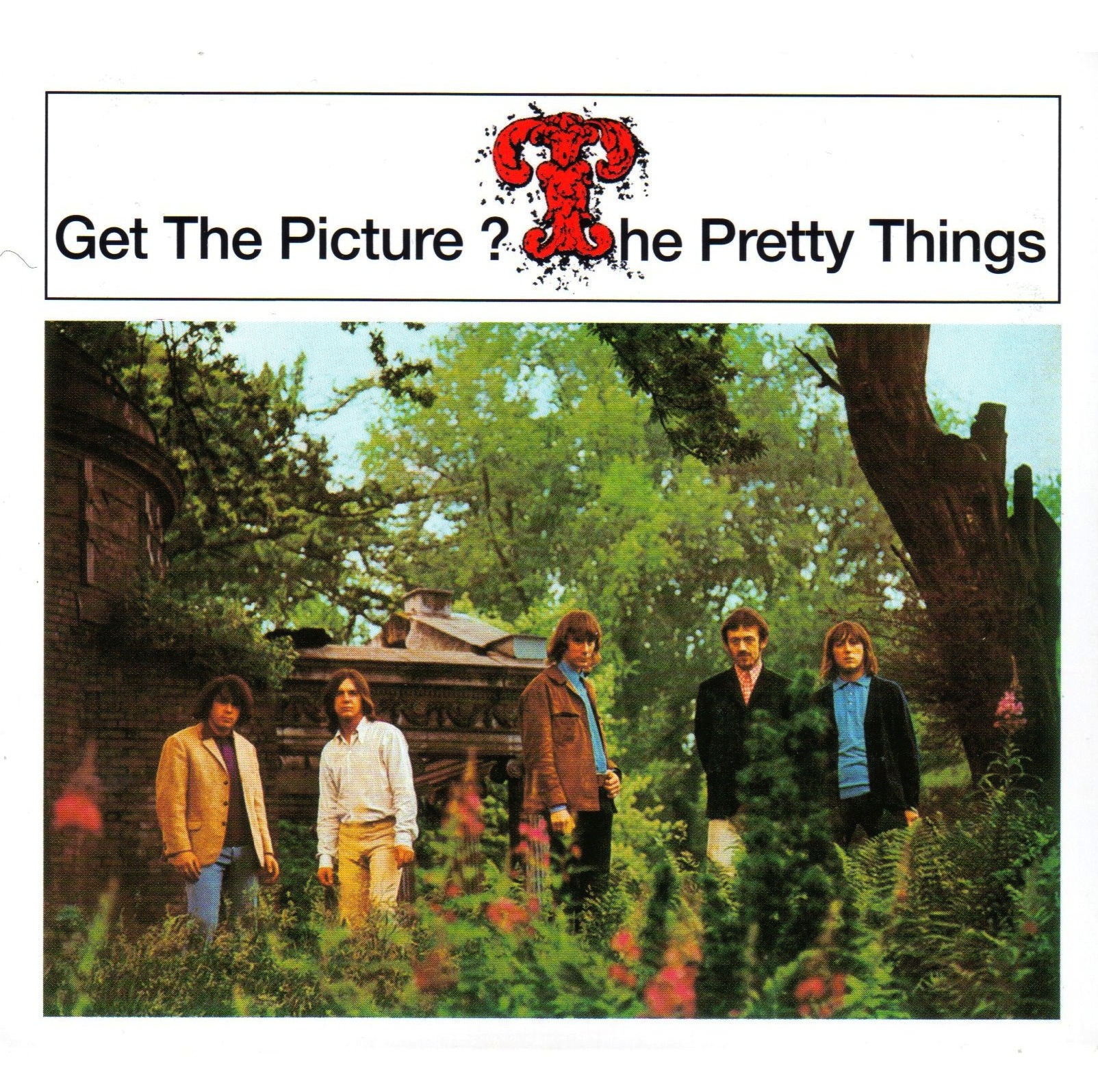 WT: The first two Pretty Things albums are among the best and most influential of the era. What do you think makes these albums so important?
WT: The first two Pretty Things albums are among the best and most influential of the era. What do you think makes these albums so important?
D.T.: I think what comes across in both the first two albums is the same rawness and spontaneity we had on stage; so many british recordings of the time were kind of blanded down and the rough edges smoothed. Bobby Graham, who produced us, managed to capture what we were truly about.
WT: In the mid sixties many of your concerts had really wild moments. Which occasions do you most strongly recall?
D.T.: It has to be the flying drummer; we played several times in Scheveningen in Holland, Viv Prince had a habit of coming off his drums and running about the place and climbing anything which he could scale and the gig had a very climbable roof. When we turned up with Skip Alan, we were told that if the drummer left his drums, we would not be paid. Skip was intent on surpassing Viv's antics but promised to stay put. The promoters had put a huge banner across the back of the stage suspended on a steel cable; towards the end of the set Skip decided to stand on his drum stool and reach up to the cable, but he didn't reckon for the spring in it; he literally shot up into the air and came crashing down on to his kit. God knows how he survived, let alone get back and play what remained of his drums. Strangely we still got paid.
WT: The Pretty Things alongside the Stones, The Yardbirds, Them etc. influenced a whole new generation of young musicians in America, the garage punk generation of the mid sixties. Did you follow this scene and did any bands stand out for you?
D.T.: We were probably less aware as we didn't go to the States, however we would hear stuff by groups like the Sonics, Seeds and of course the Kingsmen who were roughly contemporaries of ours.
WT: Can you tell us a few things about the Electric Banana project?
D.T.: We were approached by the De Wolfe publishing company who specialized in providing music for films and TV shows. We had to use a different name to avoid any contractual problems with our record company. The deal was that we had to do some songs which were written by a TV producer and could write others ourselves to provide us with royalties; we were given carte blanche as far as the material but a limited budget. Years later I was visited for some reason by some members of the Adverts of "Gary Gilmore Eyes" fame, including the lovely Gaye Advert, one of them said they were working for De Wolfe and making a few bob by selling Banana albums on the side; it was not too long before they were licensed out. I think they have been available pretty much continuously since then.
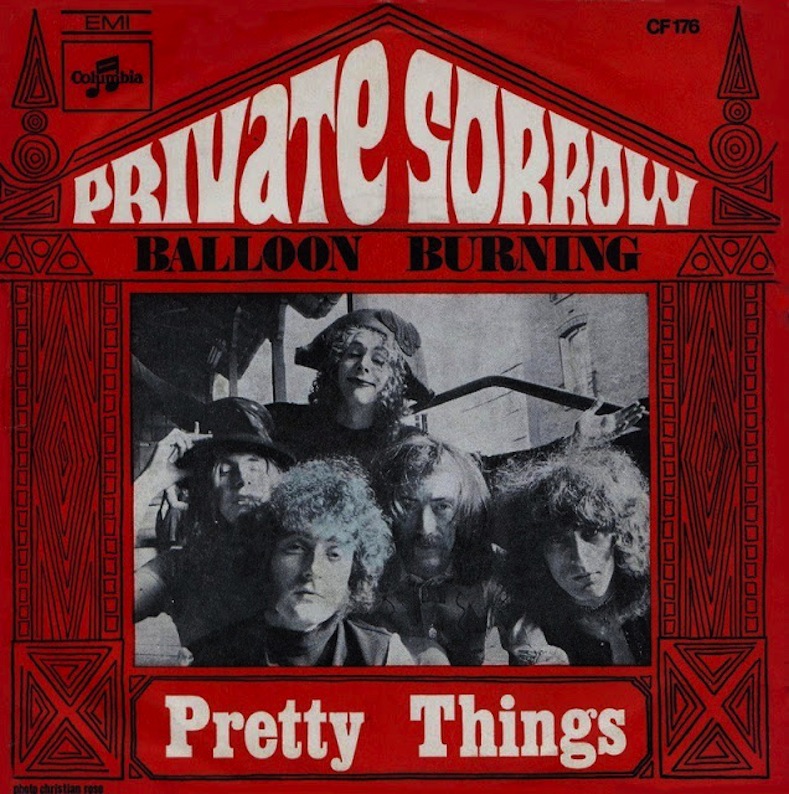 WT: With the 1967 album Emotions you entered a psychedelic and experimental phase in your music which reached its peak with S.F. Sorrow in 1968. What brought about this transformation?
WT: With the 1967 album Emotions you entered a psychedelic and experimental phase in your music which reached its peak with S.F. Sorrow in 1968. What brought about this transformation?
D.T.: I'm tempted to just say "acid" but the truth is we were kind of looking for a new direction for some time; once we finished our contract with Fontana, things started really changing, we started recording demos with no record company to rein us in, we were all listening to pretty far out stuff (from Albert Ayler to Sun Ra and Stockhausen) and wanted to experiment a bit ourselves, hence stuff like "Defecting Grey".
WT: By 1967 'swinging London' was changing. Events and happenings, like the 14 Hour Technicolour Dream or the U.F.O. club gigs, were taking place and pirate radio stations like Radio Caroline, together with the underground press like the International Times, were reaching a growing audience. The Pretty Things were a part of this. Tell us about the atmosphere in London during the psychedelic era.
D.T.: It was absolutely brilliant, it really felt like the dawn of a new era, or maybe the flowering of something which had been bubbling up for some time. I lived under some guys who were organising the first "happenings" in the Marquee. L.S.D. was still legal, they used to lock the doors, had the Floyd playing, and a good time was had by all, or at least all those who didn't finish up having a bad trip.
Later I lived in Beaufort Street, just off the King's Road, just round the corner from Granny Takes A Trip, my room was painted yellow, everything in the room was yellow, it's a wonder I didn't get jaundice. The best places were Middle Earth, UFO and the Roundhouse; peace and love got stretched a bit sometimes, I remember seeing a staged boxing match by a lot calling themselves the People's Theatre - it finished up getting totally out of hand with a lot of real blood flowing. I have a feeling The Doors were on that night.
WT: Did you follow the American psychedelic scene during the same period and which bands and albums did you like?
D.T.: The Doors, Spirit, Jefferson Airplane and of course Love were constantly on the turntable along with loads of weird stuff I can't even remember any more; there was so much great music around, we soaked it up like sponges.
WT: Can you share with us some of your strongest memories from the recording of S.F. Sorrow?
D.T.: A lot of it is pretty well etched into my brain, like everybody clattering things for the percussion bit in "Baron Saturday", tuning my guitar all to one note for "Death", borrowing Ringo's huge kit for one track, Norman Smith labouring for hours to get a loop right, bumping into the Beatles at the vending machine...
WT: Tell us a few things about the musical composition and the innovative exploration of studio effects and technology on this album.
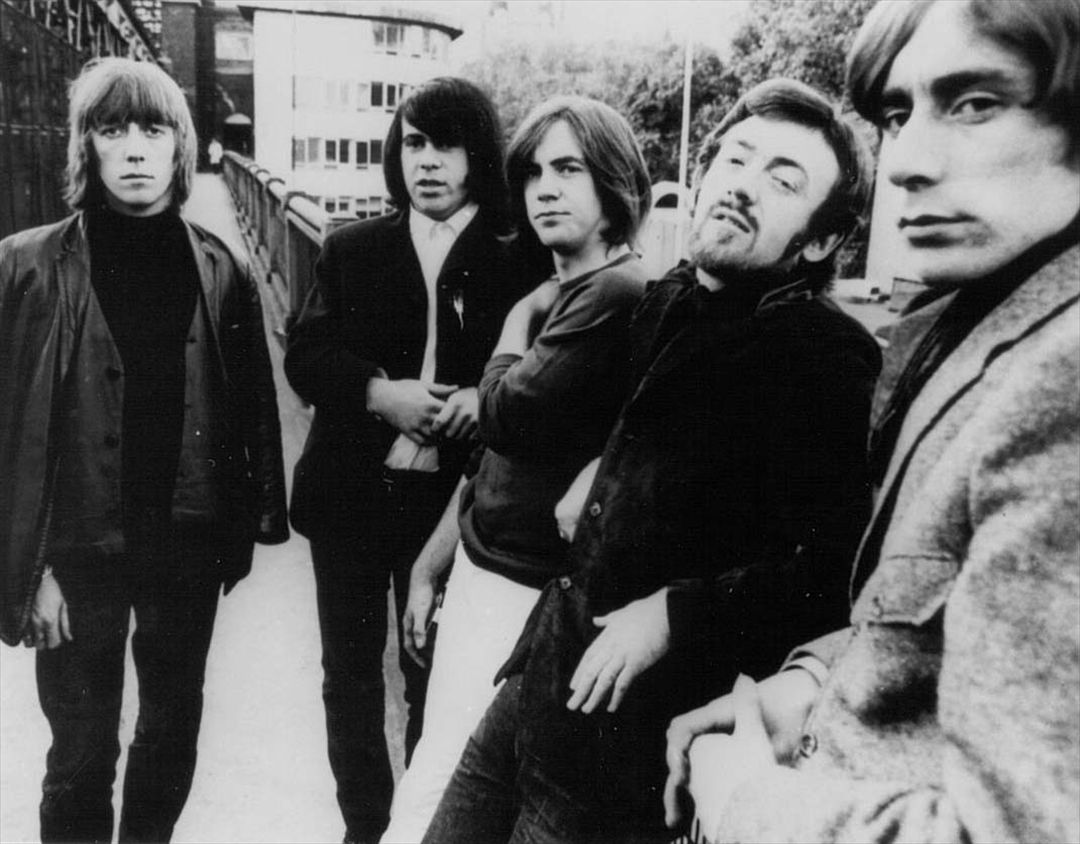 D.T.: We all gathered at Phil's parents house to write the album; sometimes a musical idea would come first, sometimes lyrics and sometimes a title or theme for a track. When we got needing a kind of evil genius, I was staying at my parents'. I only had a couple of books in the room, one of which was a Dennis Wheatly book set largely in Haiti; he kind of demonised Baron Samedi, and that's how "Baron Saturday" came about. I was sharing a flat with John Povey at the time and we sat and worked out some of the instrumental passages on sitar and guitar. My recollection is that we recorded "bracelets" first, before Phil came up with the story, which developed at the same time as the writing. It was quite an experience working at Abbey Road; there was an air of innovation, the technical guys would come in with gizmos they had cooked up, Norman would do stuff like winding tape round the capstan on a quarter inch machine to achieve really tight repeats, and we for our part would bring in things like bagpipe chanters and the dulcimer my father and I made from parts of a broken piano.
D.T.: We all gathered at Phil's parents house to write the album; sometimes a musical idea would come first, sometimes lyrics and sometimes a title or theme for a track. When we got needing a kind of evil genius, I was staying at my parents'. I only had a couple of books in the room, one of which was a Dennis Wheatly book set largely in Haiti; he kind of demonised Baron Samedi, and that's how "Baron Saturday" came about. I was sharing a flat with John Povey at the time and we sat and worked out some of the instrumental passages on sitar and guitar. My recollection is that we recorded "bracelets" first, before Phil came up with the story, which developed at the same time as the writing. It was quite an experience working at Abbey Road; there was an air of innovation, the technical guys would come in with gizmos they had cooked up, Norman would do stuff like winding tape round the capstan on a quarter inch machine to achieve really tight repeats, and we for our part would bring in things like bagpipe chanters and the dulcimer my father and I made from parts of a broken piano.
WT: When you were recording S.F. Sorrow at Abbey Road, the Beatles were there recording their White Album, and so were the Pink Floyd (with whom you also shared the same producer Norman Smith) for Saucerful of Secrets. What was your relationship with these bands and what was the vibe like in the studio at the time?
D.T.: It seemed quite normal to be bumping into the Floyd, or one of the Beatles; there was never any feeling of them being huge stars, and we were quite matey with The Floyd because they were with the same agency as us.
WT: S.F. Sorrow had a defining influence on the Who's Tommy. Not only the story line but several songs have been closely imitated; for example "Pinball Wizard" is very similar to "Old Man Going". Were you in touch with members of The Who and did they admit being influenced by S.F. Sorrow?
D.T.: We shared a roadie who took some of our tracks along to a party where apparently the Who were at. Pete Townshend has at times apparently said that he heard it, but now denies it, in fact threatened legal action against Phil for suggesting that it was an influence. Personally I don't give a shit either way; S.F. Sorrow seems to be standing the test of time rather well.
WT: Why did you leave the Pretty Things after the release of S.F. Sorrow?
 D.T.: I was very happy with the way the album had turned out, but I hadn't done anything else but be in the band after leaving art college; I just felt like a change, wanted to see what the world was like outside our bubble.
D.T.: I was very happy with the way the album had turned out, but I hadn't done anything else but be in the band after leaving art college; I just felt like a change, wanted to see what the world was like outside our bubble.
WT: Were you in touch with underground communities like the ones in Notting Hill and Ladbroke Grove and with groups like the Deviants & the Pink Fairies?
D.T.: I got friendly with Andrew Lauder at United Artists, I think it was him who first mentioned Hawkwind to me. I remember seeing them somewhere near Ladbroke Grove, loving the freshness of it and their lack of polish and excitement they generated, and from that met up with the guys from Clearwater. I always liked the Deviants and of course had known Twink right from his days with Tomorrow.
WT: You produced the debut albums of Hawkwind, Skin Alley and Cochise. What got you interested in producing and what was the experience like producing the music of other bands?
D.T.: After working with Norman I got intrigued with the idea of doing some producing, hence my starting to look for interesting bands who I felt I could work with. I seemed to get on well with all of the guys in the bands, and listening now I am pretty pleased with the results.
WT: There was a hiatus of about a decade before you re-joined the Pretty Things. During this period what musical activities did you pursue?
D.T.: I had a musical hiatus for a few years, just playing guitar for my own pleasure, but I always seemed to aquire neighbours who wanted to get me playing again.
I moved to Wimbledon and across the road from us was a fantastic songwriter and guitarist called Brian Holmes. Unfortunately his agoraphobia kept him from gigging, but he was also friendly with a young guy called Julian Isaacs, whom we got very friendly with; Jules turned into "Auntie Pus The Punk Balladeer". I went with him to see the Clash and he asked me to join Auntie and The Men from Uncle. How could I refuse? It was such an enjoyable period, we were supporting people like the Ruts, The Damned and the Subs. I came to realise there were a lot of very good musicians out there.
WT: How did you return to Pretty Things?
D.T.: A Dutch guy got in touch with me and asked if we would do a reunion gig in Alphen aan den Rijn, I phoned Phil and he in turn roped in Pete Tolson, Jon Povey, Skip Alan and Wally Waller. I have done every Pretties gig since then.
WT: Soon after your return, the Pretty Things released Cross Talk, an album with new wave / post punk elements. During the 80s you played with The Mekons. What is your opinion of the 70s punk explosion as a musical and a social movement?
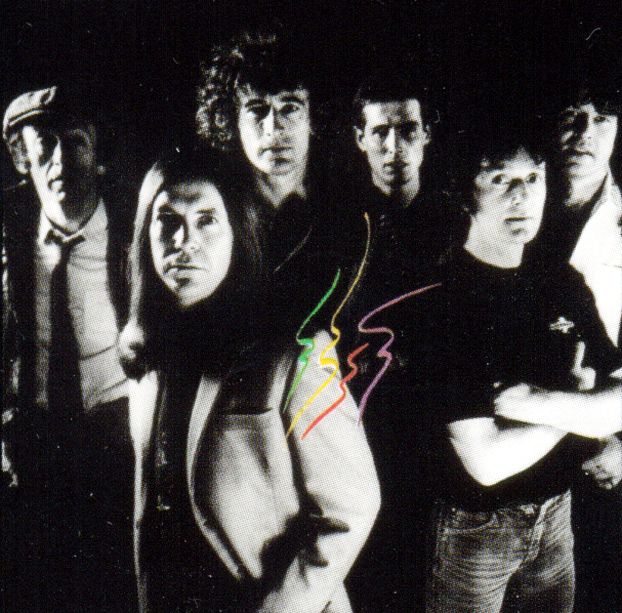 D.T.: From my previous answer I think you see how I viewed the punk movement; it was like a breath of fresh air, and most of all fun. Also the idea of anybody being able to make music came back, a bit like the skiffle boom; you didn't have to be able to play a thousand notes a minute to express yourself. As for the Mekons thing I played with them as much as I could, I loved the way they kept reinventing themselves. They are also a lovely bunch of people, it was always a pleasure to play with them.
D.T.: From my previous answer I think you see how I viewed the punk movement; it was like a breath of fresh air, and most of all fun. Also the idea of anybody being able to make music came back, a bit like the skiffle boom; you didn't have to be able to play a thousand notes a minute to express yourself. As for the Mekons thing I played with them as much as I could, I loved the way they kept reinventing themselves. They are also a lovely bunch of people, it was always a pleasure to play with them.
WT: In the early 90s the Pretty Things released two albums with Jim McCarty. How did this collaboration come about?
D.T.: George Paulus in Chicago contacted us and came up with the Yardbird - Pretty Things idea. We finished up doing two albums and I had the great pleasure of playing on albums by Andre Williams and the Eldorados - more fun.
WT: The concert at Abbey Road for the 30th anniversary of S.F. Sorrow (1998) was broadcast live on the internet. Such broadcasts were rare at the time. How did you choose to do it and what is your opinion of new technologies in image & sound broadcasting and how they influence music?
D.T.: We had never played S.F. Sorrow live. Our manager and producer, Mark St John suggested we do it, after a bit of resistance and trepidation (not from Phil or myself) we agreed to rehearse it. Guess what? It wasn't too hard to do. Funnily enough the first time that I sung "Baron Saturday" live with the Pretty Things was at the Abbey Road show, with the potential to be seen world wide. I'm actually glad that we were in quite early to the live internet thing, the internet has revolutionised the accesibility of music. I think it has also actually helped the resurgence of vinyl. Now people can download or listen to anything that takes their fancy, but when it comes to stuff they are really passionate about they can have something to treasure which also sounds great (if you don't scratch it).
WT: How did you feel, playing S.F. Sorrow 30 years later? What do you believe makes this material timeless?
D.T.: We already played a few tracks from the album, but it was great to put everything in order and context. It really does seem to hold together and flow, there are a lot of songs which are linked by the scales we used - not that we figured that out at the time - and having the narration helped a lot.
WT: For this live concert David Gilmour and Arthur Brown also played with you. How did this collaboration happen?
D.T.: Phil has been good friends with David for a long time, when Phil used to run the sessions at the Bridge House pub in Little Venice. David Gilmour would quite often come up and play rock and roll and blues with us, we just thought it would be a nice touch to get him to come and guest with us. As for Arthur, Mark had been managing and producing him, and of course we knew him from way back; he seemed the perfect person to tell the story with his mellifluous tones, he looked great behind the lectern too.
WT: In Balboa Island you sound strong and vital, much more than many young groups, which is something lacking in many of your generation's musicians still playing today. What drives this sound of yours, making it still fresh and contemporary?
D.T.: I think in some ways our relative lack of huge monetary success has helped us keep striving, we are definitely not in it for the money, and really enjoy what we do. I think Phil and I are still art students at heart, playing music because we love to do it.
WT: What kinds of music are you listening to these days and do any new bands stand out for you?
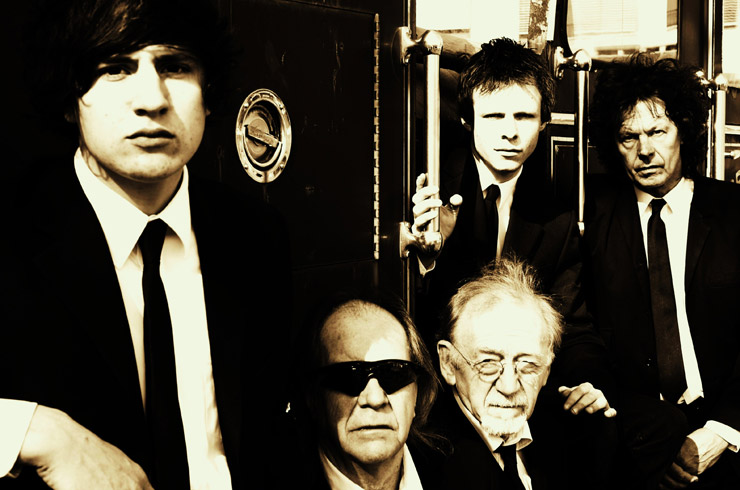 D.T.: I am becoming more and more diverse in my tastes, I am a great listener to sites like Last.fm where I can type in a name or a genre and see what happens. Lately its been Balkan music and the Carolina Chocolate Drops and funk, don't ask me why. As for new bands, the other day I saw an unsigned trio called Redrock with a hugely talented vocalist and guitarist called Kieran Hicks - watch this space. I played on an album by Sacha Morgan; she is going to be huge (I told her to go on a diet), seriously she is amazing.
D.T.: I am becoming more and more diverse in my tastes, I am a great listener to sites like Last.fm where I can type in a name or a genre and see what happens. Lately its been Balkan music and the Carolina Chocolate Drops and funk, don't ask me why. As for new bands, the other day I saw an unsigned trio called Redrock with a hugely talented vocalist and guitarist called Kieran Hicks - watch this space. I played on an album by Sacha Morgan; she is going to be huge (I told her to go on a diet), seriously she is amazing.
WT: Since the 90s, your releases have been on independent labels. How is working with such labels different from the big record companies?
D.T.: They care and you don't get left on the shelf when the A&R man changes. When we recorded Cross Talk, Warner Bros released it with the same tracks on both sides of the record, by way of apology they sent Phil a huge cheese, need I say more... Snapper have been great, they have worked our catalogue fantastically well.
WT: Fruits de Mer records have just released the single "Honey, I Need"/"I Can Never Say". Also currently we have the release of Sorrow's Children where new bands reinterpret S.F. Sorrow from the same label, and on the 6th of July the screening of the documentary Midnight to Six in L.A. There is an intense interest around the Pretty Things. David Gilmour said a few years ago that the time for a Pretty Things "renaissance" has definitely come. Do you agree with this?
D.T.: I do think we seem to be in a good position right now. I think a lot of factors have contributed; Mark St John has worked very hard at promoting us, the vintage /mod scene is very strong and bands like Kasabian are happy to say how much we influenced them and we play venues where people can enjoy themselves. YouTube has helped enormously, we seem to be attracting a younger audience and George Perez and Jack Greenwood, our young rhythm section, help to give vitality and drive to our live shows.
WT: Are you currently preparing material for a new studio album?
D.T.: Again, watch this space...............................................
WT: Mr. Taylor, thank you very much for your time. It's a great honour for us having you in Wild Thing.
D.T.: Thank you.
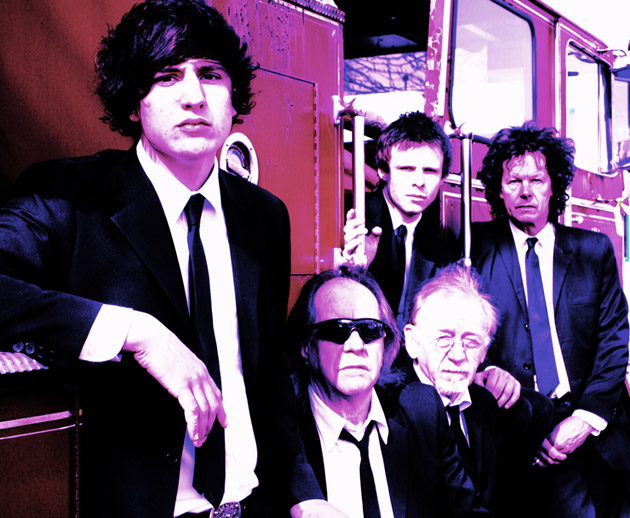
The Phil May interview
(Some of our questions are repeated twice; different views or recollections about the same situations or events certainly interest us, especially when coming from such important and vastly influential people.)
Wild Thing: At what age did music begin to interest you, how did you choose to become a singer/vocalist?
Phil May: About the same age as I got into sex... They seemed intrinsically linked. I didn't choose to be a vocalist, it chose me.
WT: What are your musical influences in singing and more generally?
Ph.M.: Ι cut my teeth vocally on Presley, Little Richard, Eddie Cochran and the whole R'n'B cannon. This was my musical education.
WT: Did you sing and play with any groups before the Pretty Things?
Ph.M.: No, I was a vocal virgin before the PT's.
WT: What reasons lead a great many musicians of your generation in Britain to play the blues / R'n' and black music in general?
Ph.M.: I think there was a - perceived by us - empathy between the british youth and the black blues musicians, both disenfranchised outsiders. Obviously in the case of the black artist there was no comparison with the shit they had to put up with... all that came out later.
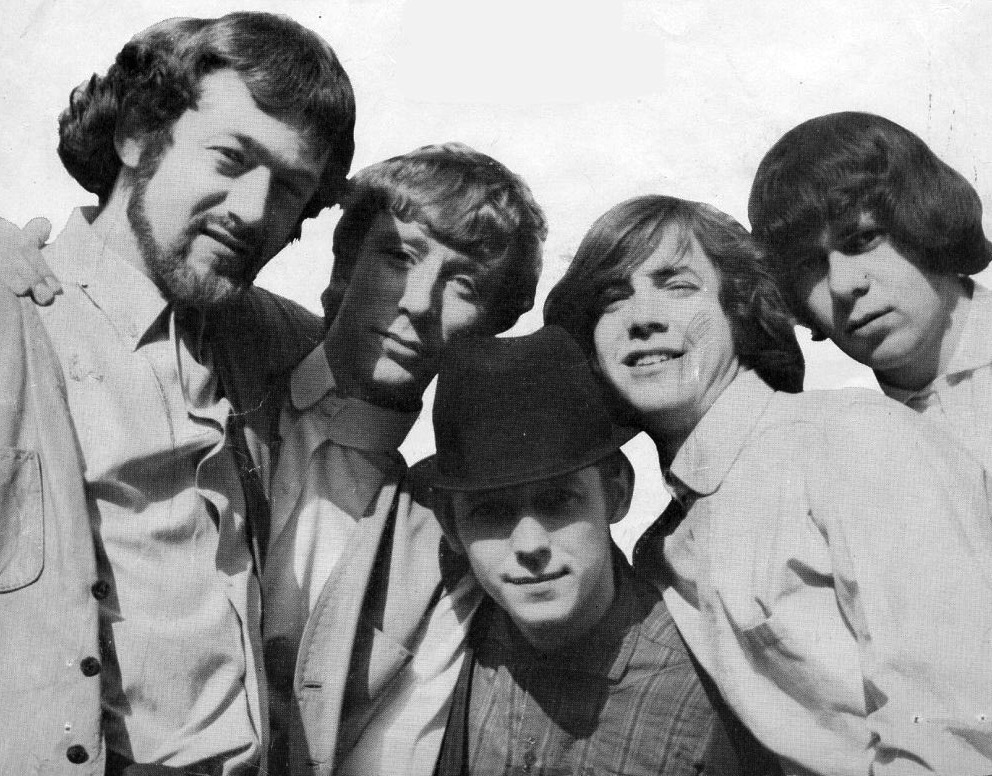 WT: Right from the beginning the music of the Pretty Things had a raw edge. You were rougher in sound and attitude than other bands of the same era. What brought this about?
WT: Right from the beginning the music of the Pretty Things had a raw edge. You were rougher in sound and attitude than other bands of the same era. What brought this about?
Ph.M.: We were never so reverent in our approach to the blues. For us it was just an inspirational starting point. We avoided copying faithfully our hero's recordings, where a lot of the other bands fell into that trap I think. We were accused of playing thrash R'n'B, a tag I'm proud of.
WT: The first two Pretty Things albums are among the best and most influential of the era. What do you think makes these albums so important?
Ph.M.: It had a lot to do with my previous answer. It was very raw, high energy recording that still leaps out of the groves.
WT: In the mid sixties many of your concerts had really wild moments. Which occasions do you most strongly recall?
Ph.M.: There are loads but one that stands out was the setting light to a theatre in New Zealand. The local authorities made the fatal error of pulling the plug on our set. The fans went wild and broke up the seats and set light to them in protest.
WT: Groups like The Pretty Things, The Stones, Them, Yardbirds etc. influenced a whole generation of American groups. Did you follow the (american) garage scene of the 60s? Did you like some of those bands?
Ph.M.: Not at the time, it was only later on that we picked up on them through mags like Mike Stax's Ugly Things.
WT: For what reasons did you not tour the United States in the sixties?
Ph.M.: Brian Morrison, our manager at the time, decided to play hard ball with the american agency, like William Morris and several others that wanted to set up a tour there. His arrogance cost the band I guess.
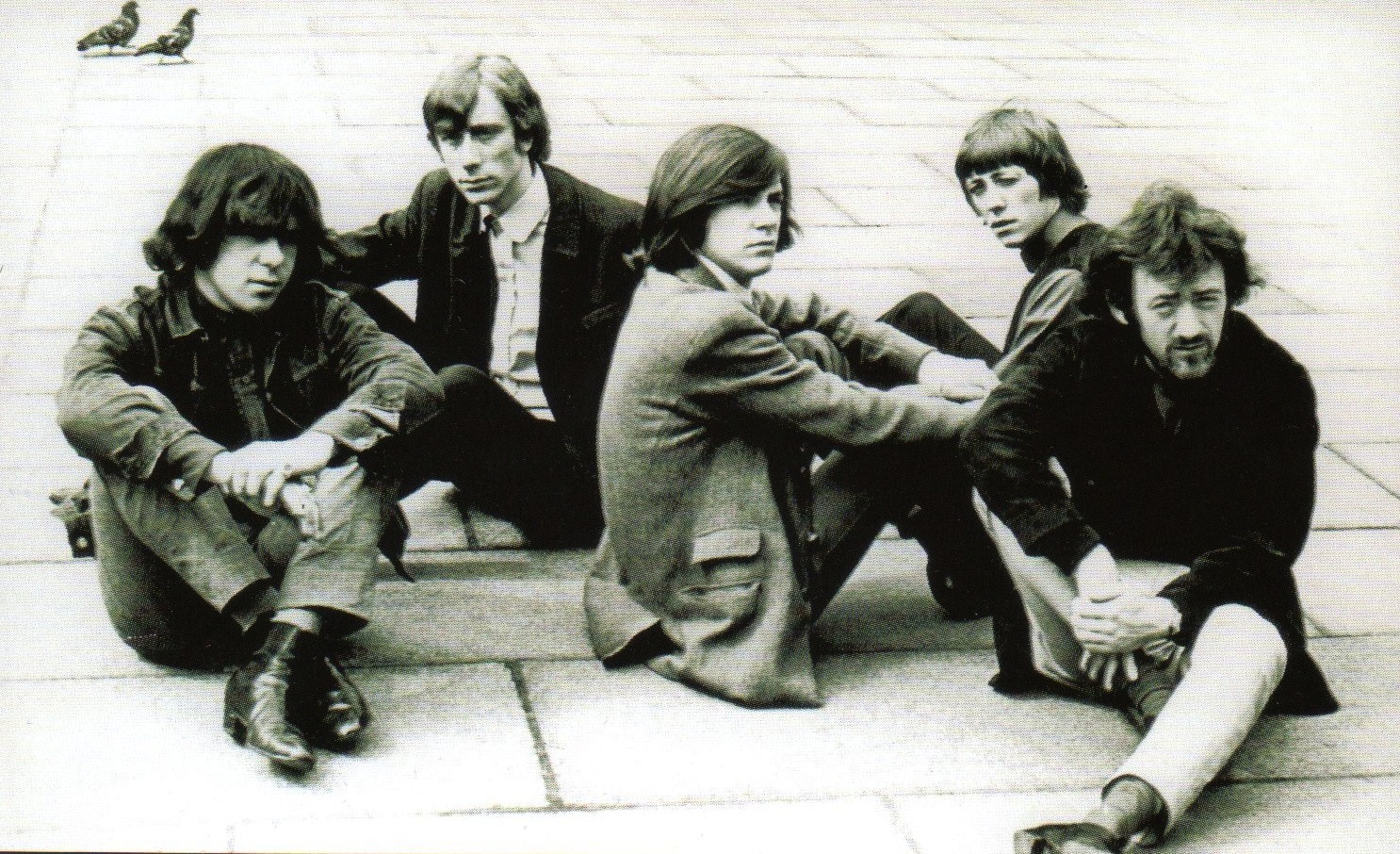 WT: In 1966 when Bob Dylan came to England, he asked to meet you. Was he a fan of the Pretty Things and were you influenced by him as a lyricist?
WT: In 1966 when Bob Dylan came to England, he asked to meet you. Was he a fan of the Pretty Things and were you influenced by him as a lyricist?
Ph.M: Yes on both counts. Maybe he was already thinking about going electric. He said he loved the sound of our first album. As a lyricist, he broke the mold... I think he learnt a few things from Chuck Berry as well; I know I did.
WT: You were the first group to play a song titled "LSD". What was this song really about?
Ph.M.: LSD! We tried the subterfuge of using the symbols for pound shillings and pence but it was still banned.
WT: With the 1967 album Emotions you entered a psychedelic and experimental phase in your music, which reached its peak with S.F. Sorrow in 1968. What brought about this transformation?
Ph.M.: The need to grow and move on from the single format. We wanted to stretch ourselves... If we hadn't made that move, I think the band would have died.
WT: What was the atmosphere like in 'swinging London' and which of your contemporary fellow musicians did you enjoy listening to?
Ph.M.: They say that if you remember it, you weren't there. There was so much good stuff around then. The bands inspired each other.
WT: Which american psychedelic bands did you enjoy listening to?
Ph.M.: Buffalo Springfield, Iron Butterfly, Captain Beefheart, The Doors, The Jefferson Airplane, loads of stuff.
WT: How were you inspired you to write the S.F. Sorrow story?
Ph.M.: I wrote a lot of prose and poetry at the time. I was fascinated by the musicality and rhythms in the words themselves. The two things coincided, our need for a theme and the short story I was working on at the time.
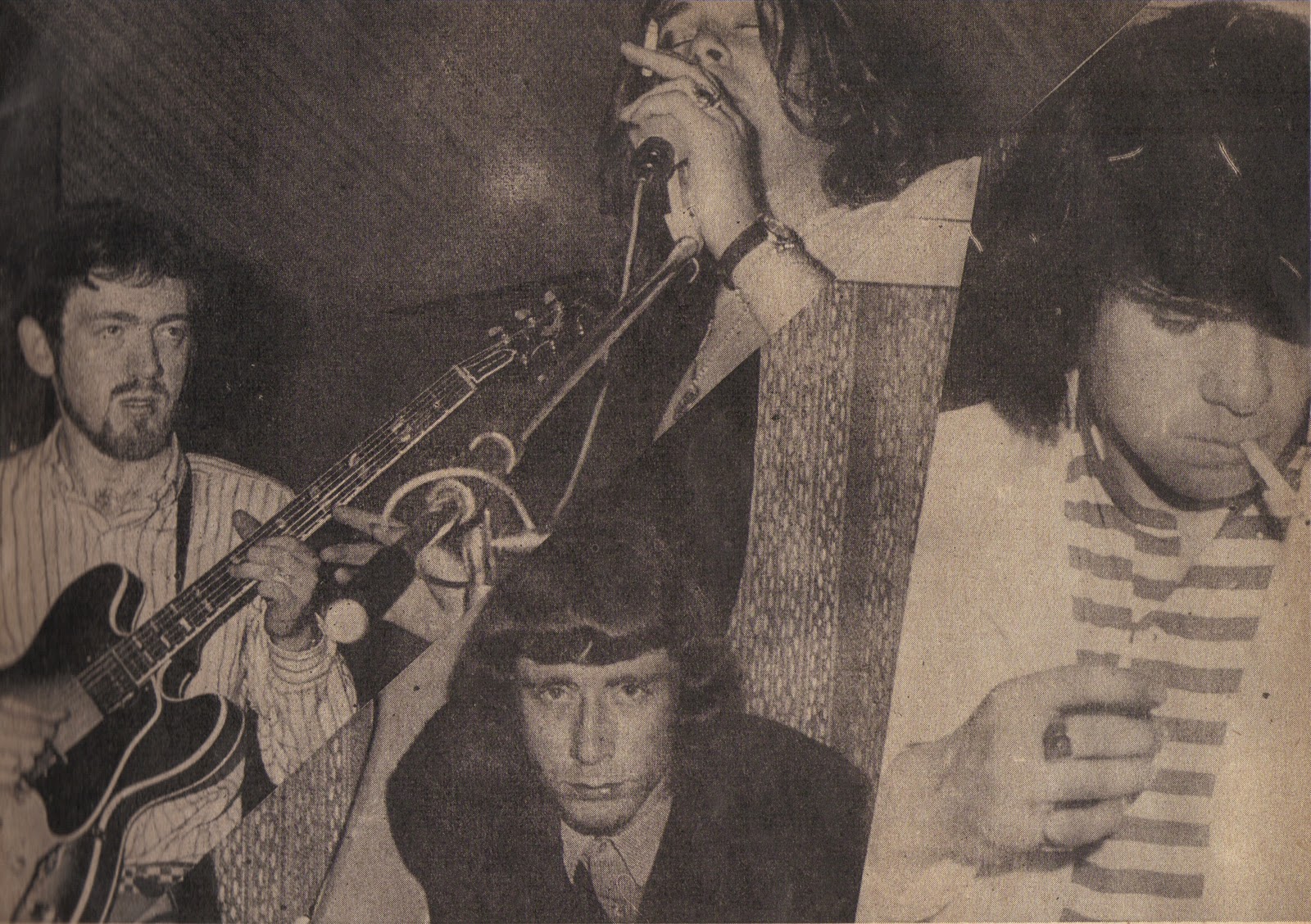 WT: You also made the cover design for the album. Are you still painting/drawing?
WT: You also made the cover design for the album. Are you still painting/drawing?
Ph.M.: Yes, I have never really stopped since leaving art school. I always carry a sketch book of some kind while on the road in which I also note ideas for lyrics. I'm preparing an exhibition of my drawings, examples of which will appear on our web site when it is launched.
WT: Can you share with us some of your memories from its recording?
Ph.M.: I think you will have to wait for the book to come out... I know that we rarely left the studio before the sun came up; we were so wrapped up in the project.
WT: When you were recording S.F. Sorrow at Abbey Road, the Beatles were there recording their White Album, and so were the Pink Floyd (with whom you also shared the same producer Norman Smith) for Saucerful of Secrets. What was your relationship with these bands and what was the vibe like in the studio at the time?
Ph.M.: We had socialized with the Beatles a few times previously so although like most we were somewhat in awe of the Fab Four the vibe was very friendly. Lennon always put his head round the door of our studio to have a listen when he arrived each day. With the Floyd we shared the same agency and during the recording the bands became quite close.
WT: The American release of S.F. Sorrow by Motown found some difficulties and was both delayed and inadequately promoted. Can you tell us what happened?
Ph.M.: It was pretty simple, E.M.I railroaded us into the Tamla deal totally against our wishes. They made a balls up of their Rare Earth launch and we caught the flack.
WT: In 1969 you recorded with Philippe Deborge. Can you tell us a few things about these recordings?
Ph.M.: He was a huge Pretty Things fan and a millionaire. At first he wanted Wally and I to write songs for his album and then the rest of the band got sucked into doing the recording. He was a sweet guy and his subsequent suicide was a shock to us all.
WT: Alongside The Pretty Things, you also made records under the name Electric Banana. Was this side project a vehicle only for movie scores or did it expand further?
Ph.M.: Initially it was only meant for movies and t.v. But it became a cult record when the kids that worked in the warehouse started selling them out of the back door.
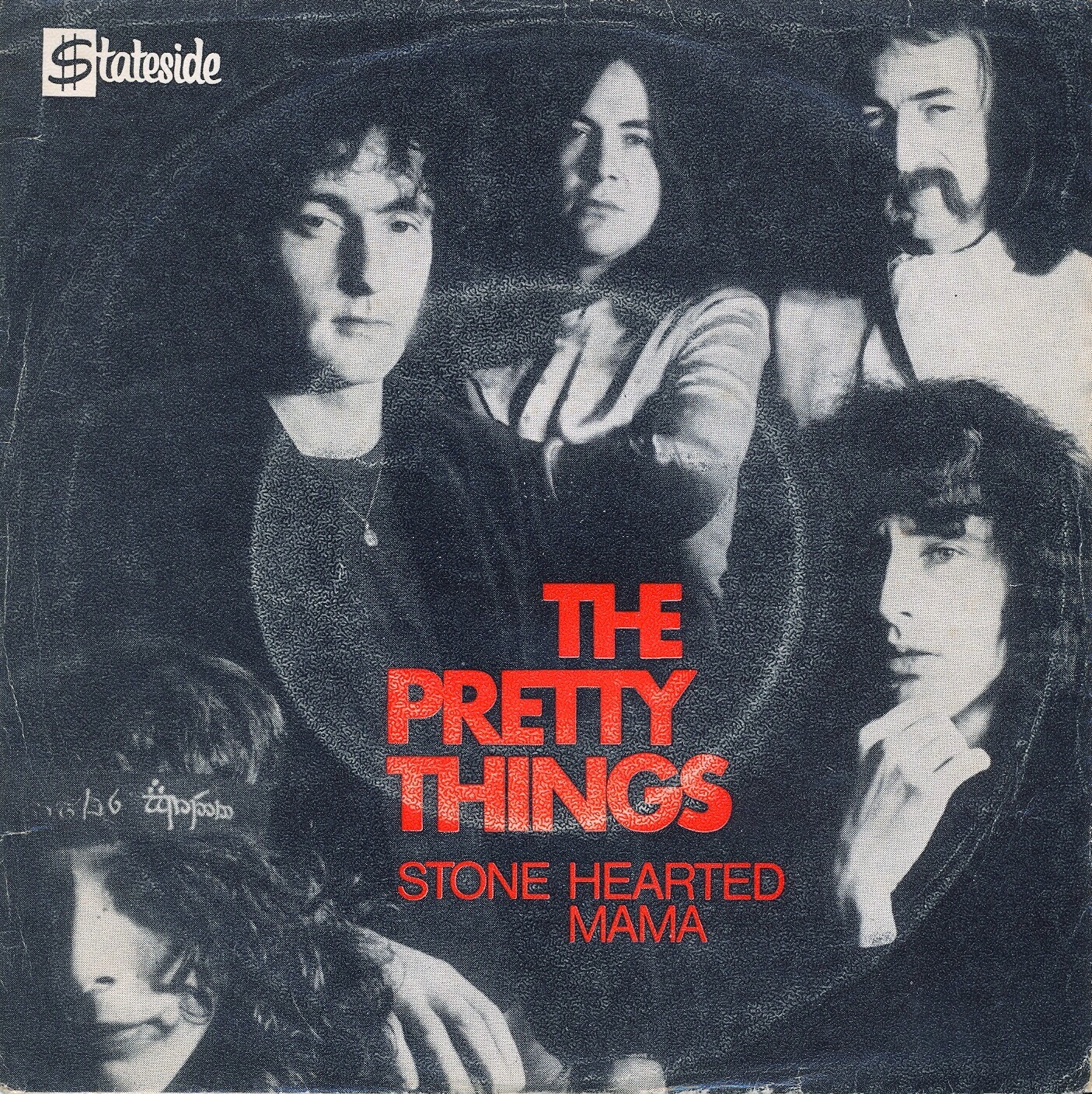 WT: Parachute was the first album recorded after Dick Taylor left the group. What changed after his departure?
WT: Parachute was the first album recorded after Dick Taylor left the group. What changed after his departure?
Ph.M.: Basically the ship sailed on...
WT: Is Parachute a sort of link between your psychedelic period and the sound you evolved in the 70s?
Ph.M.: I suppose it is. You are not always aware of evolution when you are in the middle of it. The band was moving on after the S.F. Sorrow kick in the balls. Dust yourself off and get back in the saddle.
WT: With Freeway Madness you moved to a different direction. This continued with Silk Torpedo and Savage Eye. Tell me a few things about these albums and the 70s era.
Ph.M.: I keep giving you the same answer but the band was constantly evolving as I've said. Changes of personnel, changes in our thinking etc.
WT: In 1978 you recorded a solo album with The Fallen Angels. Is it your only solo recording? What did it feel like, recording without the Pretty Things?
Ph.M.: Yes it was my only solo album. How did it feel? Different... but I was still making music.
WT: In 1980 you released Cross Talk which has new wave / post punk elements. What is your opinion of punk musically and as a social phenomenon? Joey Ramone and Joe Strummer, among others, openly admired The Pretty Things. Is there a connection between your music and the punk explosion?
Ph.M.: I thought punk was a much needed breath of fresh air... The business was becoming stale. Crosstalk is definitely our contribution to punk... After S.F. and our first album, it's my favorite. If we had some influence on punk, then great; but it was a two way street.
WT: After Cross Talk in the 80s you released Live at the Heartbreak Hotel & Out of the Island. Did these live recordings signal a kind of return to your classic 60s sound?
Ph.M.: Not really. They both came out of different series of collaborations with other muso's by Dick and I.
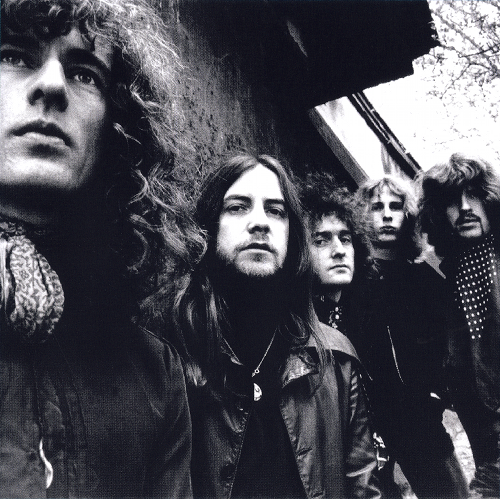 WT: In the early 90s you recorded two albums with Jim McCarty. Tell me a few things about this collaboration and about the song material you used.
WT: In the early 90s you recorded two albums with Jim McCarty. Tell me a few things about this collaboration and about the song material you used.
Ph.M.: This was a project of George Paulus... to take three british r&b'ers to Chicago to play and record with local musicians... I know there was a lot of the white stuff around... It was an interesting experience.
WT: In 1998 you made the reunion live recording of S.F. Sorrow at Abbey Road with David Gilmour & Arthur Brown. The concert was broadcast live over the internet. What was it like to play the whole album after 30 years and how did the collaborations come about?
Ph.M.: Nerve racking, especially the live broadcast from Abbey Road. We were certainly helped by two great mates, David and Arthur joining the cast... It was the start of the true resurrection of Sorrow.
WT: How did you come to use internet broadcasting, an uncommon occurrence at the time?
Ph.M.: I have no idea... I'm not very technical.
WT: I have read that the 1999 release Rage Before Beauty was 19 years in the making. Is this true? Can you tell us about your musical process, from initial inspiration to final recording?
Ph.M.: [You'll have to] wait for the book... I can't encapsulate 19 years into one answer I'm afraid.
WT: Is it true that the original title of the album was Fuck Oasis and Fuck You?
Ph.M.: Yes..
WT: One of the songs on this album is dedicated to Vivian Prince, your drummer from the mid sixties. Why did he leave the band?
Ph.M.: He became impossible to play with, due to his destructive behavior... I still loved the loon but he had to go.
WT: In Balboa Island you sound strong and vital, much more than many young groups. What drives this sound of yours, making it still fresh and contemporary?
Ph.M.: I don't really know. We always look to challenge ourselves... and if we have got nothing worth saying, we don't record it.
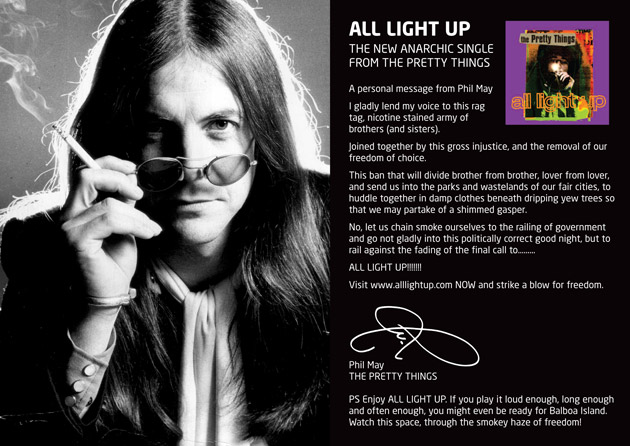 WT: The song "All Light Up" refers to the sixties, but not just the flowers and be-ins. What is your take now on the myth of the sixties generation? I have read that this same song has been dedicated to the more recent banning of smoking in all public spaces, including bars and pubs. Is this true?
WT: The song "All Light Up" refers to the sixties, but not just the flowers and be-ins. What is your take now on the myth of the sixties generation? I have read that this same song has been dedicated to the more recent banning of smoking in all public spaces, including bars and pubs. Is this true?
Ph.M.: We were naïve, but I wouldn't have missed it for the world, a one-off period. Yes, it protested the right to smoke in Britain.
WT: Do any new bands stand out for you?
Ph.M.: I would love to say yes, but sadly...
WT: Since the 90s, your releases have been on independent labels. How is working with such labels different from the big record companies?
Ph.M.: Basically freer. More control.
WT: David Gilmour said a few years ago that the time for a Pretty Things "renaissance" has definitely come. Do you agree with this?
Ph.M.: Yes!
WT: Are you currently preparing material for a new studio album?
Ph.M.: There are quite a lot of things in the can, yet to see the light of day. But, yes watch this space.
WT: Mr.May, thank you very much for your time. It's a great honor for us having you in Wild Thing.
Phil May, London, 15-09-2012.
[The ed. Ah, so that's it. This is history for poor little Wild Thing. These folks are the fathers of you all, dear readers & fans. Now we can only wish to see them in a stage somewhere in Athens and possibly meet them in person sometime. One last word comes to mind: Respect.]
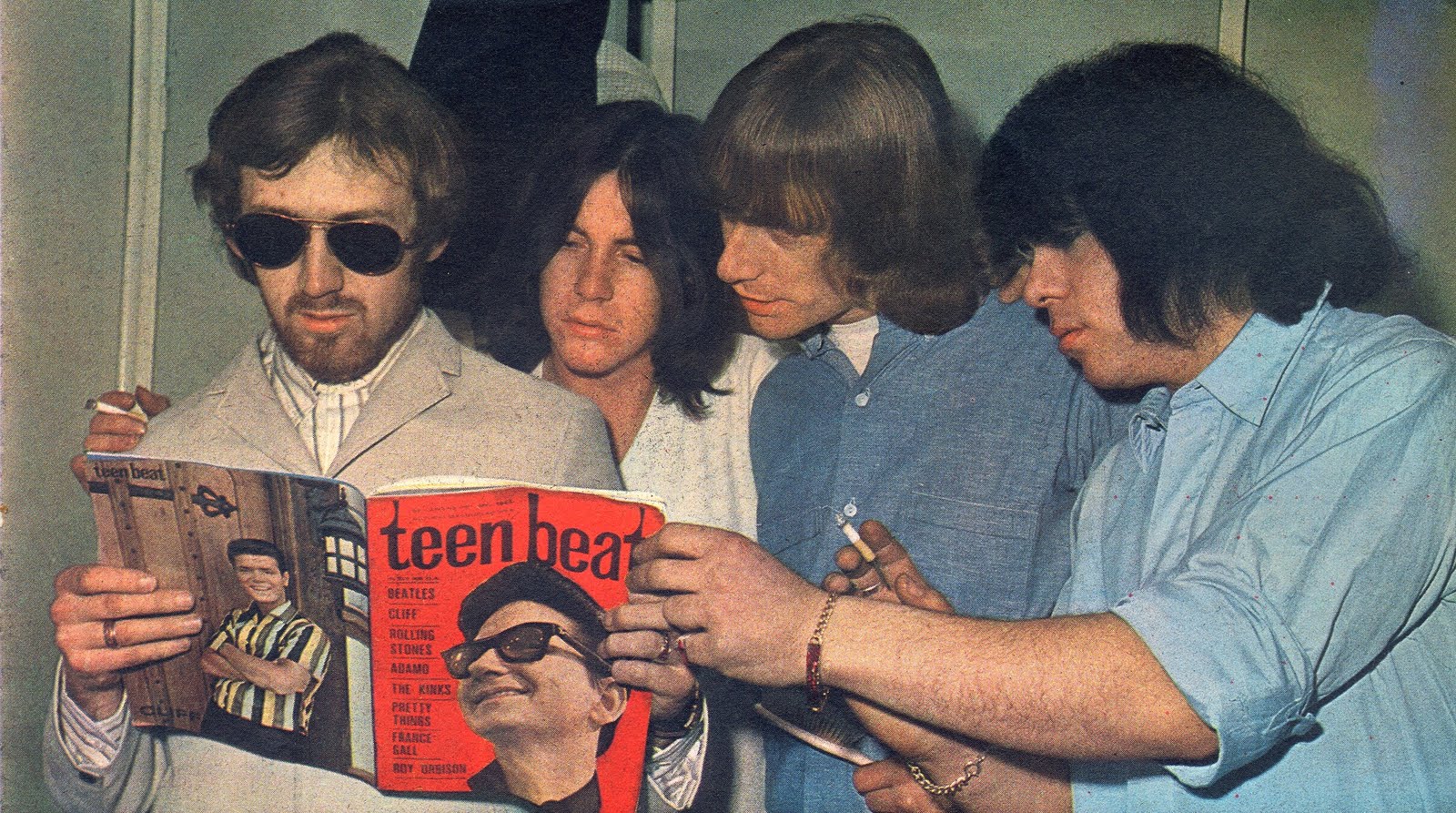

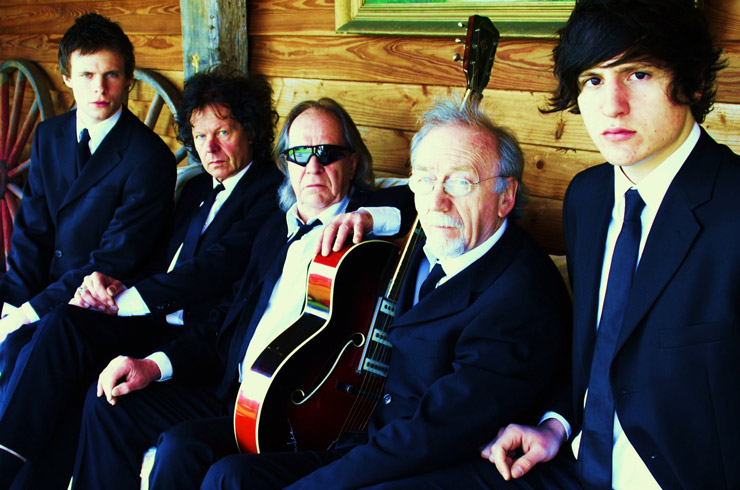
A Pretty discography:
THE PRETTY THINGS:
- The Pretty Things (1965)
- Get the Picture (1965)
- Emotions (1967)
- S.F. Sorrow (1968)
- Parachute (1970)
- Freeway Madness (1972)
- Silk Torpedo (1974)
- Greatest Hits 1964-1967 (1975, compi.)
- Savage Eye (1976)
- Real Pretty (1976, 'S.F. Sorrow' & 'Parachute' reissued as a double LP)
- The Vintage Years (1976, compi.)
- The Singles A's & B's (1977, compi.)
- Cross Talk (1980)
- Live at Heartbreak Hotel (1984, live)
- Out of the Island (1988, live)
- Rockin' the Garage (1992, live)
- The EP Collection (1997, compi.)
- Resurrection (1998, live recording of 'S.F. Sorrow' at Abbey Road Studios feat. Arthur Brown & David Gilmour)
- Rage... Before Beauty (1999)
- Balboa Island (2007)
- Philippe DeBarge (2009, recorded in 1969)
ELECTRIC BANANA:
- Electric Banana (1967)
- More Electric Banana (1968)
- Even More Electric Banana (1969)
- The Electric Banana: Live at the Grand (1969)
- Hot Licks (1970)
- The Return of The Electric Banana (1978)
PRETTY THINGS & THE YARDBIRD BLUES BAND (Phil May, Dick Taylor, Jim McCarty):
- The Chicago Blues Tapes (1991)
- Wine Women Whiskey (1994)
The Pretty Things - S.F. Sorrow LP (1968):
"S.F. Sorrow is Born"/"Bracelets of Fingers"/"She Says Good Morning" /"Private Sorrow"/"Balloon Burning"/"Death"/"Baron Saturday"/"The Journey"/"I See You"/"Well of Destiny"/"Trust" /"Old Man Going" /"Loneliest Person"
Tags: The Pretty Things, Phil May, Dick Taylor, interview, S.F. Sorrow Live in London
From 1998 to 2012...
Some personal favourites!!
BLUE CHEER - What Doesn't Kill You (2007)
BUDDY GUY - Skin Deep (2008)
BUDDY MILES - Blues Burries (2002)
CHRIS DUARTE GROUP - Blue Velocity (2007)
COLOUR HAZE - Colour Haze (2004)
CORROSION OF CONFORMITY - America's Volume Dealer (2000)
FU MANCHU - California Crossing (2001)
GARY CLARK JR. - The Bright Lights E.P. (2011)
GEORGE THOROGOOD & THE DESTROYERS - 2120 South Michigan Avenue (2011)
GUITAR SHORTY - We The People (2006)
JAMES BLOOD ULMER - Birthright (2005)
JIMMIE VAUGHAN - Plays Blues, Ballads & Favorites (2010)
LESLIE WEST - Unusual Suspects (2011)
MONSTER MAGNET - Powertrip (1998)
OZRIC TENTACLES - Live At The Pongmaster's Ball (2002)
PORCUPINE TREE - Fear Of A Blank Planet (2007)
QUEENS OF THE STONE AGE - Rated R (2000)
REIGNING SOUND - Too Much Guitar (2004)
R.L. BURNSIDE - Well Well Well (2001)
ROBERT RANDOLPH & THE FAMILY BAND - Live At The Wetlands (2002)
ROKY ERICKSON - True Love Cast Out All Evil (2010)
THE BLACK KEYS - The Big Come Up (2002)
THE BRIAN JONESTOWN MASSACRE - Bravery, Repetition & Noise (2001)
THE CLUTCH - Blast Tyrant (2004)
THE FUZZTONES - Salt For Zombies (2003)
THE HELLACOPTERS - By The Grace Of God (2002)
THE SUPERSUCKERS - Live At The Magic Bag, Ferndale, Michigan (2004)
TOOL - Lateralus (2001)
WOLFMOTHER - Wolfmother (2005)
(Άκης Γαρράς / in the meantime...)
